LG G4 is a strong contender for being the best television of 2024. Thanks to the combination of OLED black and MLA technology, we will get an incredibly dynamic and vibrant image that will surely captivate us completely. LG G4 is also proof that televisions equipped with an OLED panel supported by MLA technology are indeed suitable for viewing in bright rooms. The operating system, while not as open as the competition, allows for many possibilities. Its greatest advantage is the well-known remote with a cursor, which makes controlling the unit (in our opinion) one of the most convenient on the market. Factory colour reproduction, although not at a high level, after undergoing calibration, can be considered almost reference-quality, providing a truly cinematic image. No wonder post-production studios choose televisions from this manufacturer. They uniquely offer such a deep capability to adjust the image, thanks to 3D LUT calibration. It seems that the biggest (and perhaps only) drawback of this television is the tonal transitions, which, while far from perfect, cannot be said to detract from the viewing experience. The remedy is provided by the manufacturer themselves, and enabling the "Smooth Gradation" function will remove the vast majority of any choppiness. LG G4 also performs exceptionally well when watching all kinds of sports or other dynamic scenes. The motion smoother is incredibly advanced and allows for adjustment of smoothness to suit individual needs. Thanks to HDMI 2.1 ports with full functionality and the manufacturer's attention, the tested television will find its place in the homes of many passionate gamers. Each of the essential features works flawlessly, and the low input lag in every mode is very pleasing. In summary, LG G4 is an incredibly versatile television, allowing for entertainment in excellent quality both at night and during the day.
- Matching (Score)
- Our verdict
- TV appearance
- Where to buy
- Contrast and black detail
- HDR effect quality
- Factory color reproduction
- Color reproduction after calibration
- Smoothness of tonal transitions
- Image scaling and smoothness of tonal transitions
- Blur and motion smoothness
- Console compatibility and gaming features
- Input lag
- Compatibility with PC
- Viewing angles
- TV efficiency during daytime
- Details about the matrix
- TV features
- Apps
- Playing files from USB
- Sound
LG OLED G4 vs LG QNED86A / QNED85A / QNED87A
Direct compare
G45 / G42
QNED85A / QNED86A / QNED87A / A6A / A6B / A6C

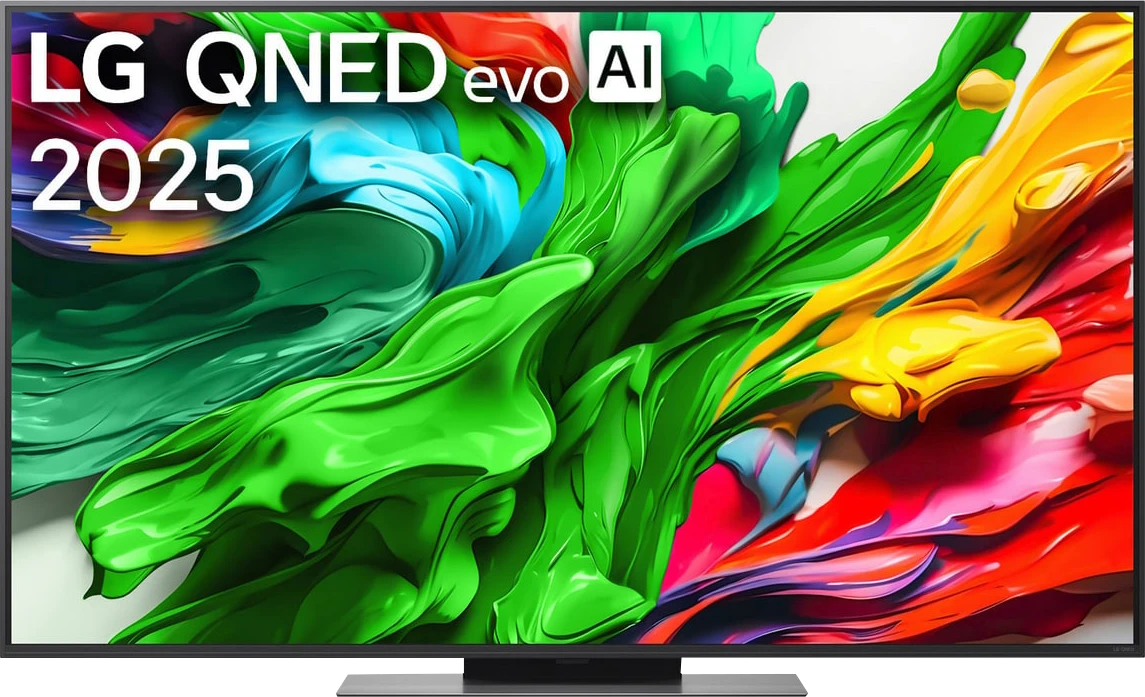
Panel type: WRGB OLED
Resolution: 3840x2160
System: WebOS
Model year: 2024
Complete the survey to find out the result

Panel type: LCD IPS
Resolution: 3840x2160
System: WebOS
Model year: 2025
Complete the survey to find out the result

Overall rating
8.5
7.0
Movies and series in UHD quality
8.6
6.4
Classic TV, YouTube
9.1
6.2
Sports broadcasts (TV and apps)
9.0
7.2
Gaming on console
9.5
8.4
TV as a computer monitor
8.6
8.0
Watching in bright light
5.8
5.8
Utility functions
9.0
8.4
Apps
9.1
9.1
Sound quality
8.6
6.0
Complete the survey to find out what fits your preferences
Advantages
Phenomenal image fidelity to the director's intent
Reference colour reproduction post-calibration
Very high brightness in HDR content
Outstanding compatibility with consoles and computers
The panel effectively suppresses light reflections
Perfect viewing angles
120 Hz panel, great for sports and gaming
Very low input lag
Excellent for gamers (VRR, ALLM, HGiG etc.)
Full set of HDMI 2.1 ports
Good compatibility with PC (great font readability)
Bright picture (about 700 nits in HDR), suitable for moderately bright rooms
Good viewing angles (IPS)
Support for Dolby Vision
User-friendly webOS operating system with Magic Remote control featuring voice assistant
Ability to record programs to USB
Disadvantages
Visible tonal transitions
Sound of the built-in audio system - it could be better in this class of television
Very poor black levels and contrast due to the IPS panel
Lack of the advertised 144 Hz in PC mode
Aggressive “light stripes” when local dimming is turned on (edge local dimming ruins evening movie sessions)
Confusion in model names and versions – even TVs with the same name in different stores can have different stands (central or two legs) or frame colours, which can be quite misleading when making a purchase.
Our verdict
QNED86A6A is a television that really does a great job in its price class when it comes to sports, gaming, and everyday TV viewing. The 120 Hz panel makes the image smooth, and the motion sharp, which will be appreciated by both fans and gamers. Additionally, it has low input lag along with a full suite of gaming features such as HGiG, VRR, and ALLM. The television works just as well with a computer as it does with a console, so in the office or on a desk in the 43” version, it will serve excellently as a work monitor. Another strong point is the webOS system. It’s a fast, stable, and app-rich operating system that paired with the Magic Remote provides very convenient operation. The new version of the remote is slimmer and fits better in the hand, and the on-screen cursor is a feature that many competitors lack. On top of that, there are classic features – USB recording, Bluetooth for headphones, and a full set of HDMI 2.1 with eARC and Dolby Atmos support. This makes the televisions from the QNED85 series some of the most "multimedia" televisions in their class. But there’s no point in sugar-coating it; this model also has some significant drawbacks. Its biggest disadvantage is undoubtedly the contrast, or rather the lack thereof. The IPS panel combined with the edge-lit “mini-LED” is just a very bad idea. The screen simply isn’t suitable for watching movies in a dark living room. Blacks are a greyish-blue, and local dimming can create strips of light reminiscent of lasers, which effectively ruins the viewing experience. For home cinema, it’s not a choice that can be recommended with full conviction. The second issue may not be directly related to the television itself but rather its sales. It concerns chaos in the naming conventions and differences in derivative versions. The same model, even with the same designation, can have a different colour frame or stand depending on the store. This can really be frustrating for the buyer and evoke a sense of confusion. To summarise briefly: LG QNED86A6A is a great television for sports, gaming, and everyday TV, with a convenient system and high functionality. But if you’re looking for a screen strictly for movies or series and require deep blacks, it’s better to look towards televisions that can actually be confidently referred to as Mini-LEDs.
TV appearance




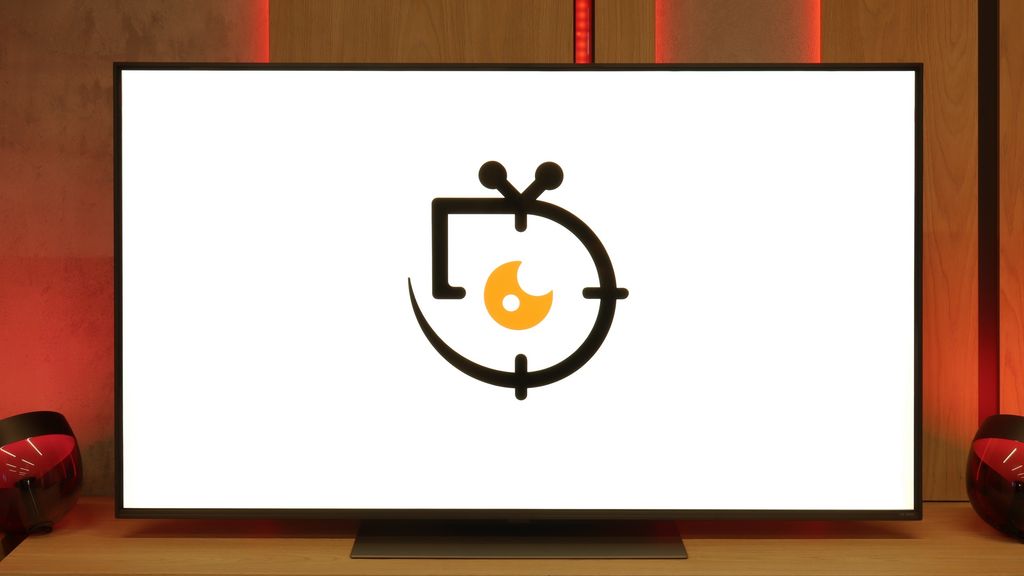
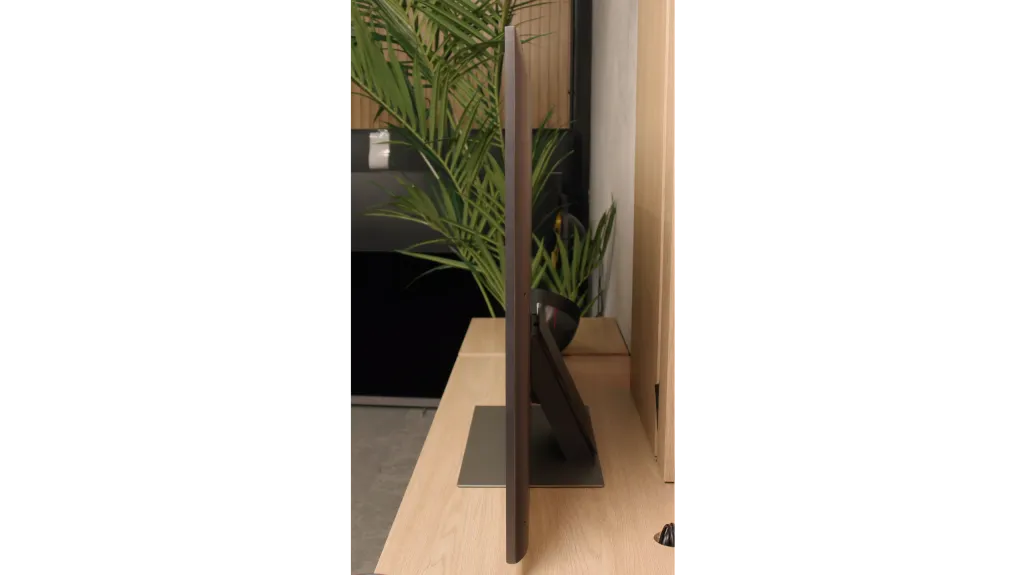
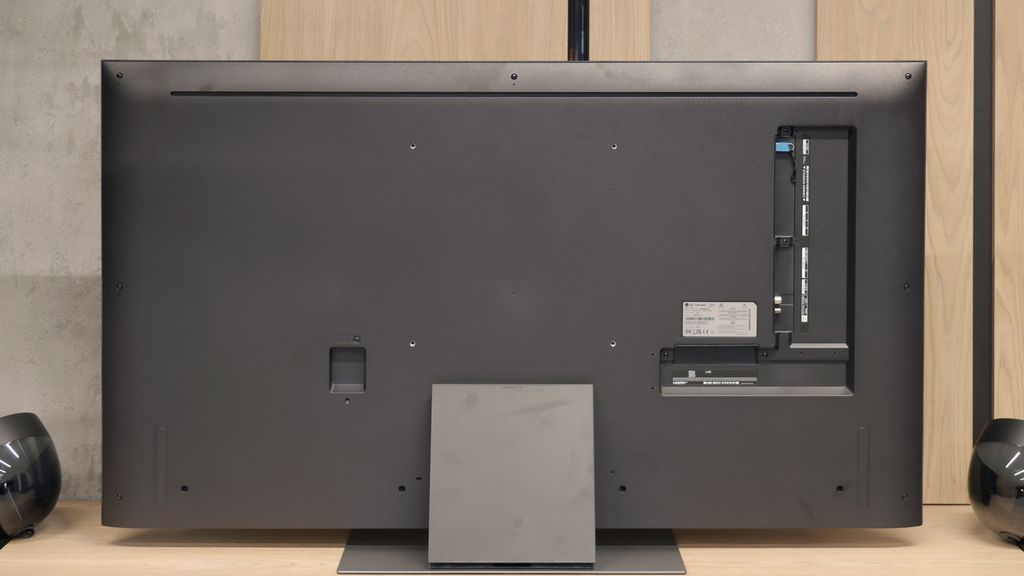
Contrast and black detail
10/10
3.7/10
Local dimming function: Yes, number of zones: 6 (1 x 6)
Contrast:
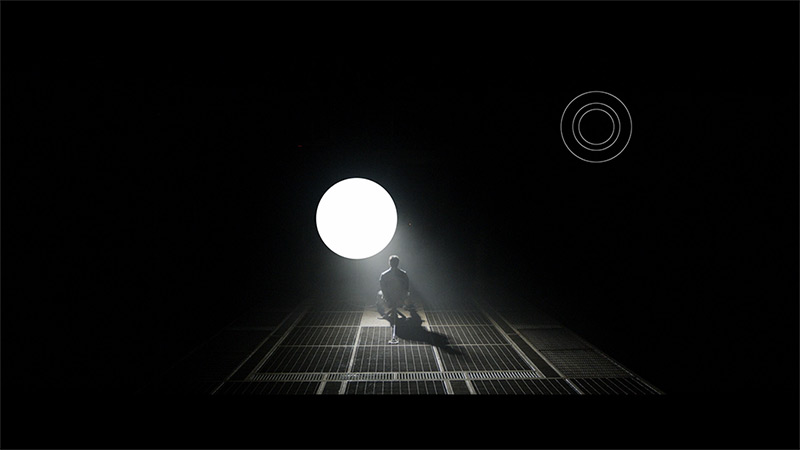
Result
∞:1
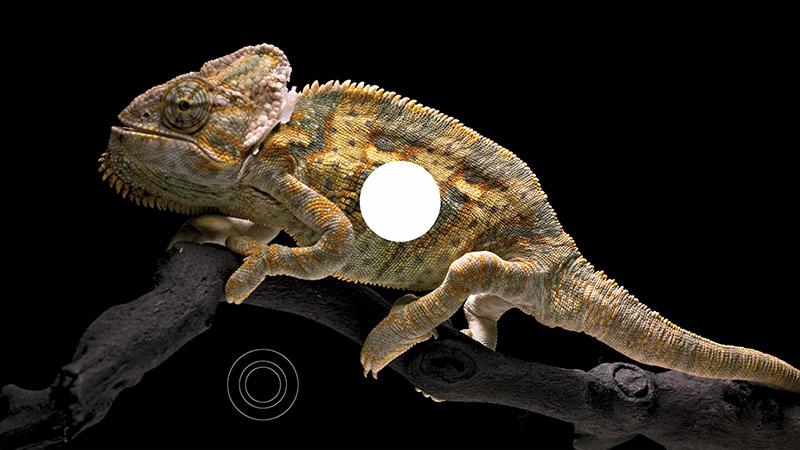
Result
∞:1
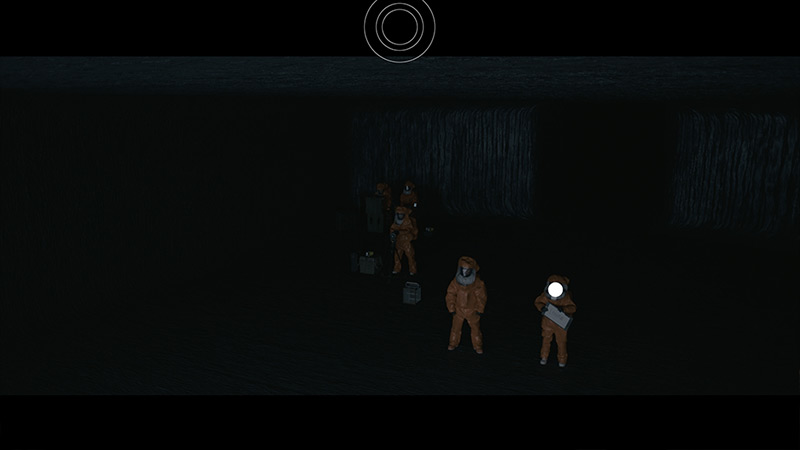
Result
∞:1

Result
∞:1
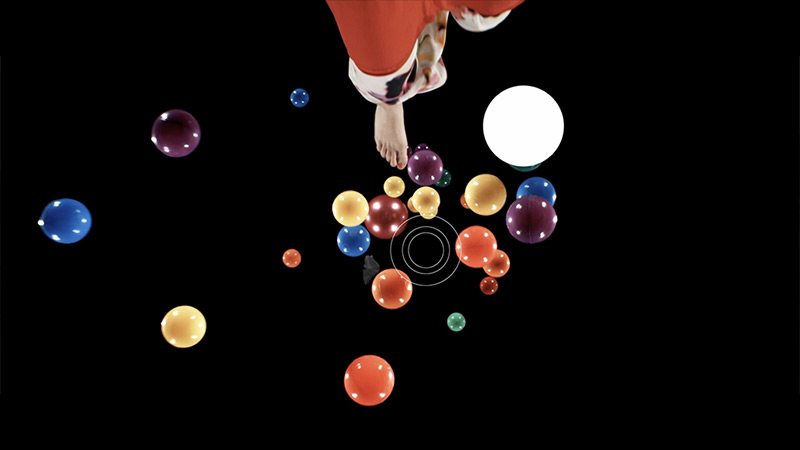
Result
∞:1

Result
4,050:1

Result
1,750:1

Result
4,800:1

Result
1,850:1

Result
1,350:1
Halo effect and black detail visibility:

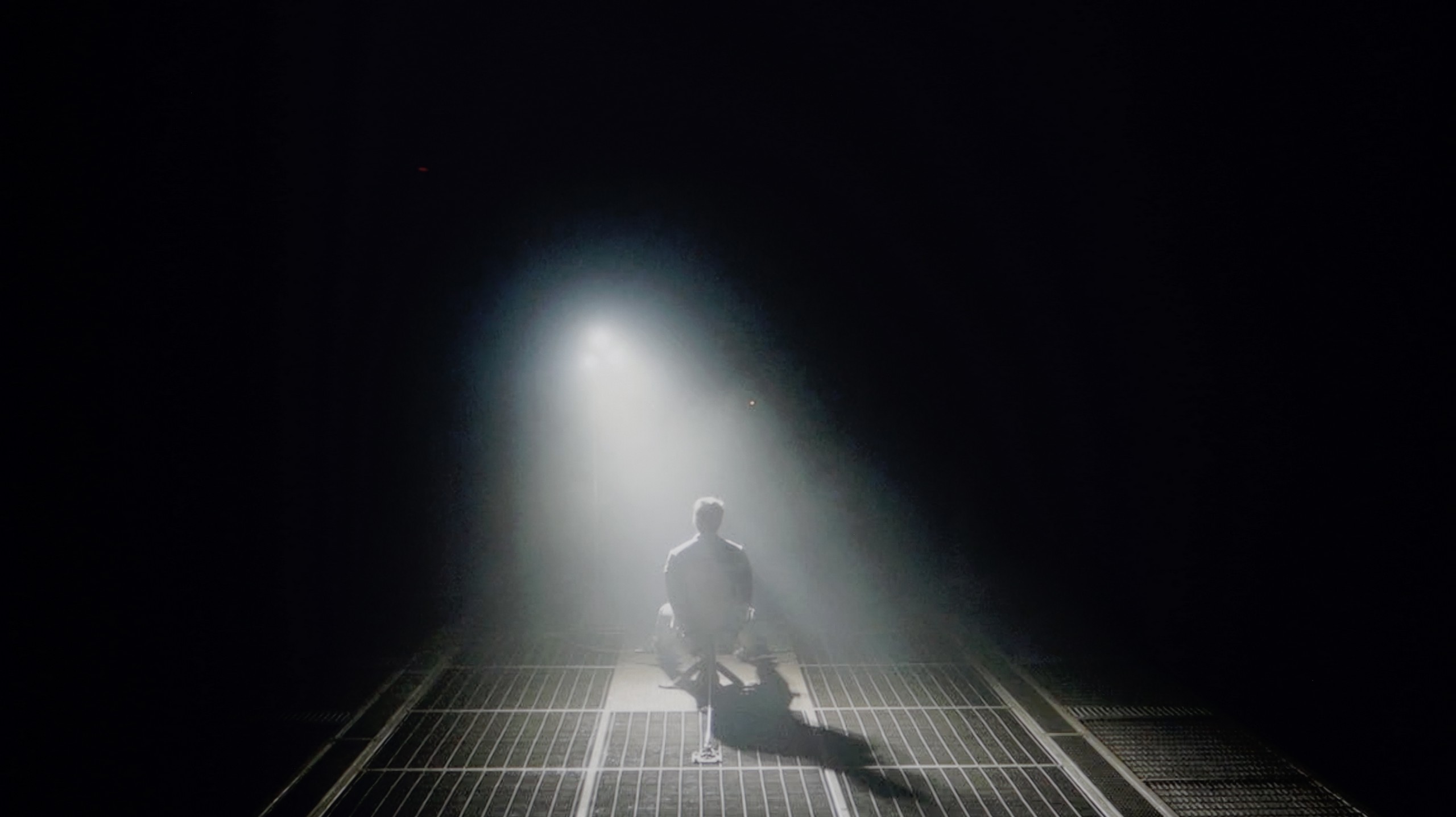
LG G4, with its OLED panels produced for over 10 years, delivers perfect contrast, black levels, and detail reproduction in the darkest scenes. It's worth noting that the panel itself is equipped with MLA (Micro Lens Array) technology, which LG showcased just a year ago with the launch of its predecessor. The use of an organic panel not only allows for achieving pitch-black blacks but also provides extraordinary immersion and a three-dimensional effect in the image, which is hard to find even in the best Mini LED TVs. Such image quality is closely linked to OLED panel technology, as each pixel is controlled by an electrical impulse rather than shading filters on the panel. Therefore, if we want to achieve black, the pixel is simply turned off. This is very evident in test images, where the spotlight provides high brightness while being perfectly separated from each other. The situation remains unchanged in the challenging scene from "Sicario 2," where no imperfections from zone dimming can be seen, which we might encounter in LCD TVs.
While the manufacturer describes the QNED86A as a Mini-LED television, there’s no sign of the multi-zone local dimming system known from pricier models. In practice, we have a classic edge lighting system, which only allows for dimming horizontal strips of the screen from top to bottom. Combined with a low-contrast IPS/ADS panel, the effect is simply poor. If we choose to leave local dimming on, a problem arises - the television can illuminate selected areas in such a way that it looks like “flying lasers” crossing the screen. This is very distracting and in such conditions, it’s hard to talk about truly cinematic experiences. Therefore, in our opinion, it's better to turn this function off. However, one must reckon with the fact that the contrast then drops to around 1500:1, but at least the image doesn’t irritate with artificial flashes.
HDR effect quality
7.9/10
6/10
Luminance measurements in HDR:

Result
1474 nit
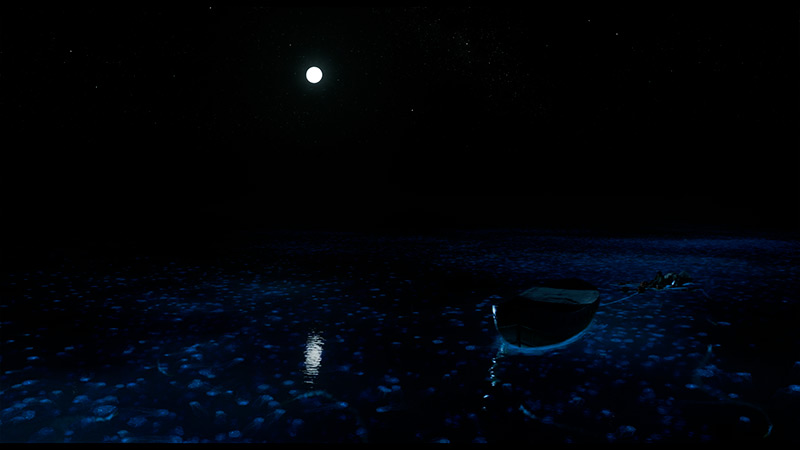
Result
1467 nit
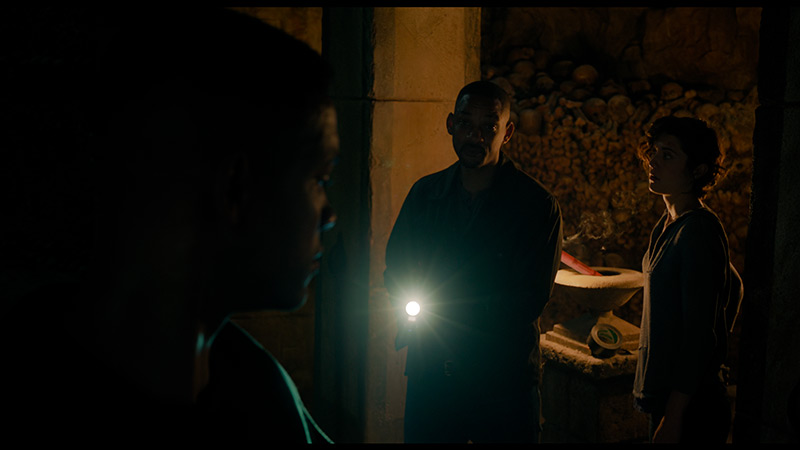
Result
1403 nit
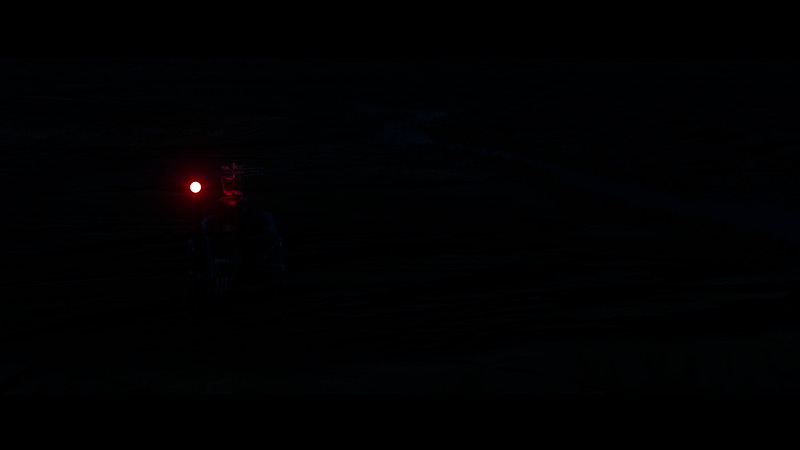
Result
1441 nit

Result
850 nit

Result
602 nit

Result
524 nit

Result
690 nit

Result
512 nit

Result
500 nit
Scene from the movie “Pan” (about 2800 nits)

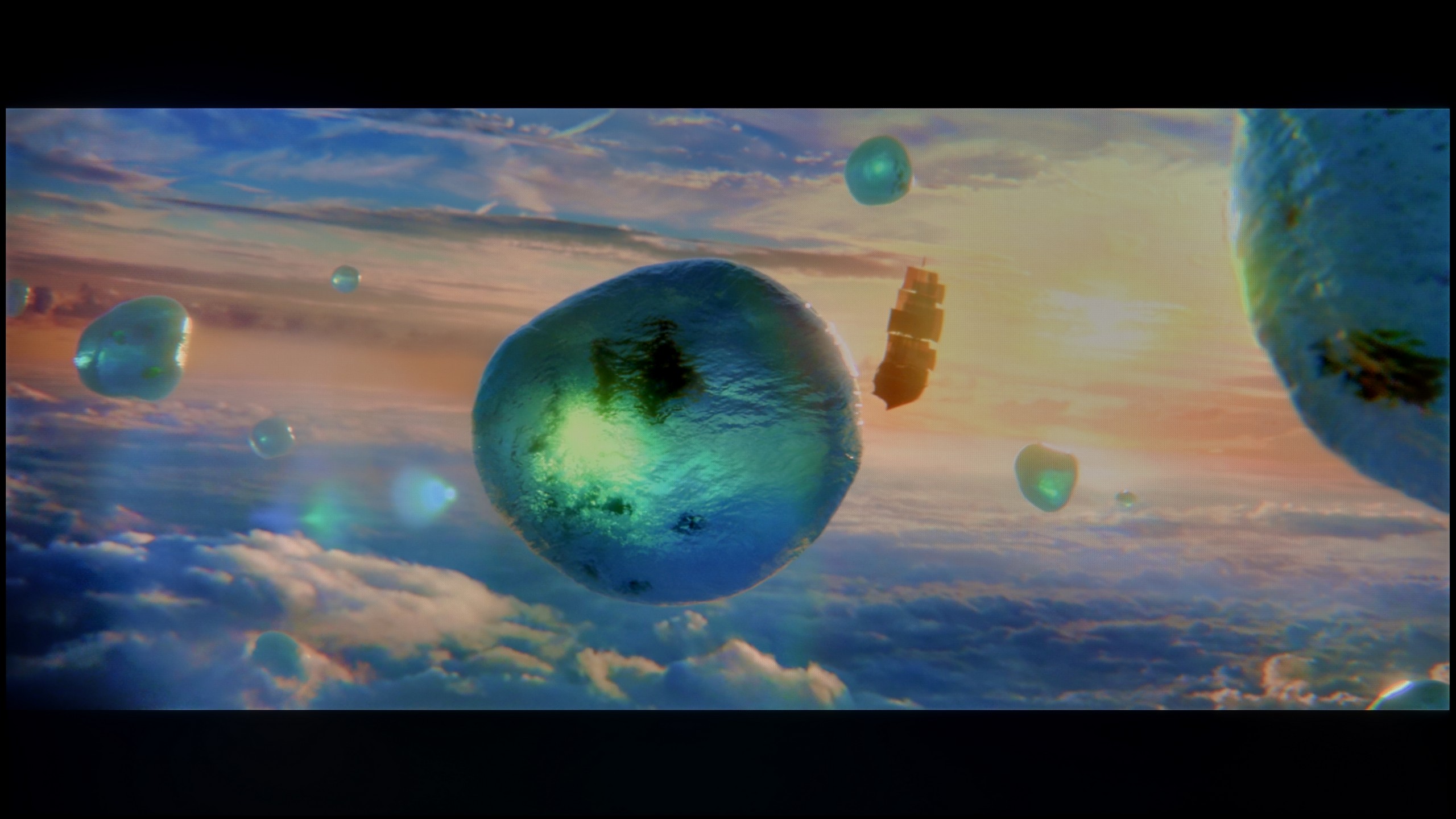
Scene from the movie “Billy Lynn” (about 1100 nits)

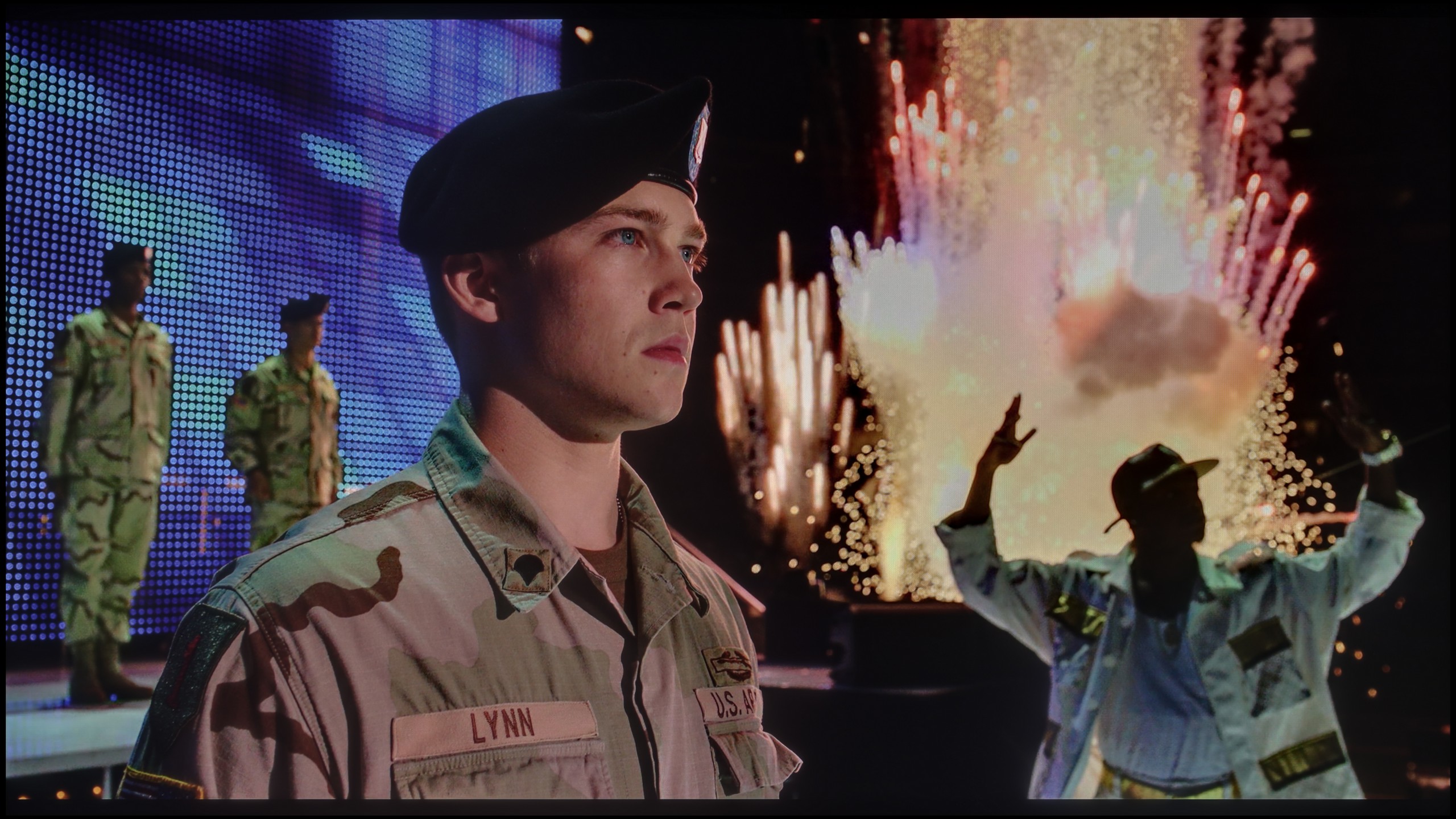
Static HDR10

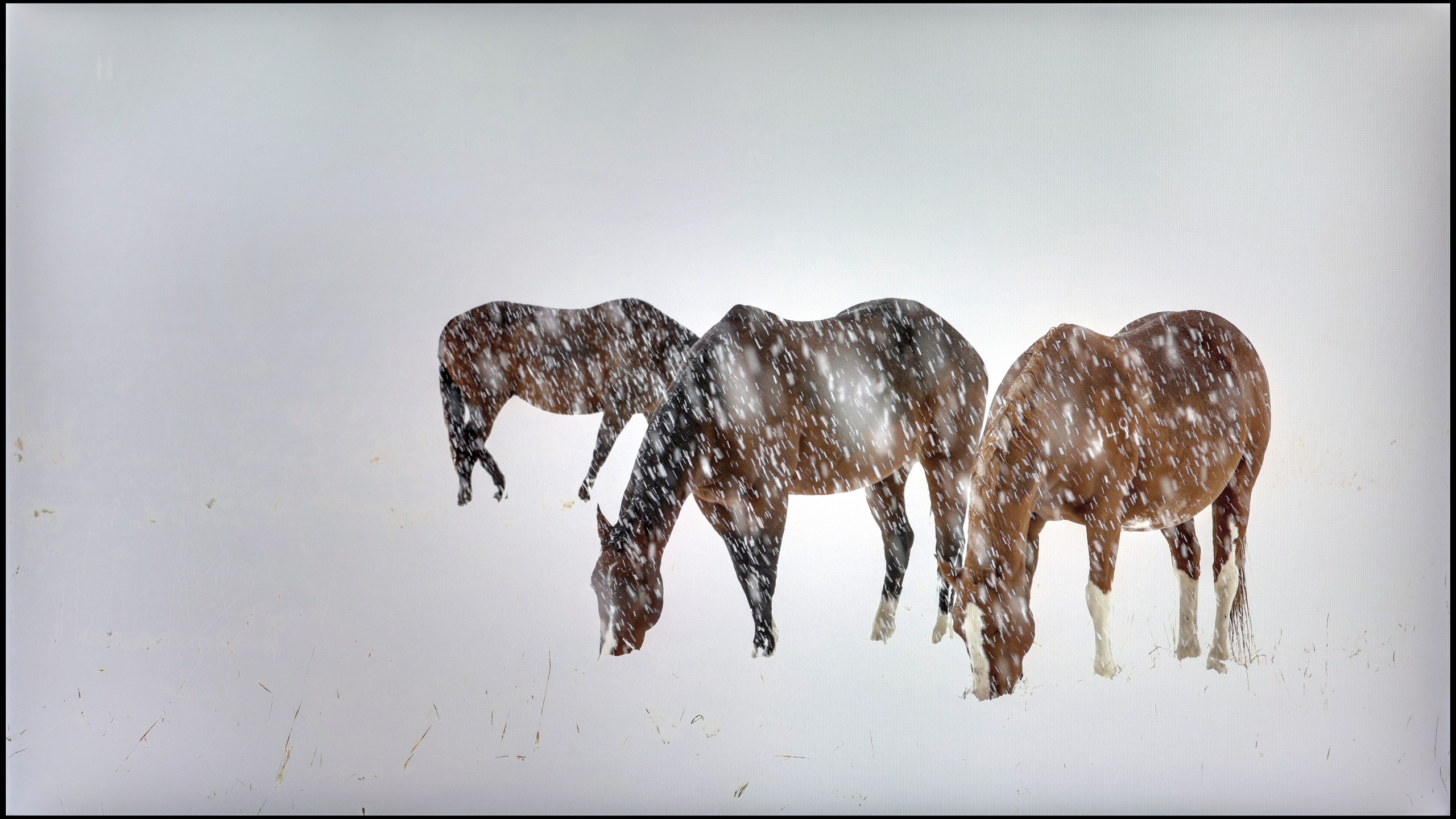
Dynamic: Dolby Vision
Dynamic: Dolby Vision


HDR luminance chart:
LG QNED86A / QNED85A / QNED87A
HDR luminance
LG OLED G4
HDR luminance
Luminance of RGB colors
LG G4 guarantees an incredibly vibrant HDR effect, placing the television firmly at the top of the rankings. The highest model in the manufacturer's 2024 portfolio, equipped with the second generation of microlens technology (MLA), has achieved a maximum brightness level of 1474 nits in real scenes. The only area where the product of the Korean manufacturer may fall short compared to LCD televisions with Mini LED backlighting is during a full-screen scene featuring a lot of white. If we were to disregard the latter scene, the average result would be even higher. It's also worth mentioning scenes with very fine details, where each one shone at full intensity, which is not as evident in non-OLED televisions. The combination of such brightness and wide coverage of the DCI-P3 color space ensures that HDR materials are more engaging than ever before.
Against the backdrop of contrast and black, the brightness of the QNED86A and the overall HDR effect fare much better. It's a television that can achieve around 700 nits under the best conditions, so in terms of luminance alone, there’s nothing to be ashamed of. As a result, scenes with strong lights, explosions, flashes, or bright parts of the landscape – look clear and can make an impression. Interestingly, even in tougher moments with small, contrasting elements on the screen, the television does well with backlighting and details are quite visible. The problem arises when there are many dark tones. The lack of effective local dimming means that black virtually disappears, and instead, we get a grey glow spreading across the entire screen. This kills the depth effect and causes the image to appear flat, as if it lacks cinematic character. In bright animations or family films with vibrant colours, this won't be an issue, as the colours and bright light dominate. But in horror films or productions set in darkness, these limitations are strongly felt. As a consolation, it’s worth noting that the QNED86A is essentially a QLED television with an LED PFS filter, which gives it very good coverage of wide colour gamuts. Both the DCI-P3 palette and the wider BT.2020 perform solidly here. This means that colours in HDR films are saturated, juicy, and have the right depth – even if the black itself is disappointing, the colours can save the viewing experience and make the image look appealing.
Factory color reproduction
8.4/10
5.6/10


Factory Mode
After calibration


Factory Mode
After calibration
The best factory mode in terms of colour reproduction was "Filmmaker". This is the one we used during our tests. Let's check how its characteristics looked before the calibration process. Taking a closer look at the white balance first, we can notice a significant dominance of red and green colour. As a result, the image had a warm yellow tint. This is the kind of characteristic we usually observe in "Cinema", "Filmmaker", or similarly named modes. The effect of such a colour balance was clearly visible in both SDR and HDR content, which, after switching from "Standard" mode, was distinctly yellowed. Now let's move on to two graphs that are responsible for brightness characteristics, and consequently, image contrast. The first one (Gamma), representing materials with a standard colour palette, performed decently. For most of the time, the midtones and bright whites were represented very accurately, however, it noticeably lost the darkest details which blended into a black patch. On the other hand, HDR materials, represented by the EOTF curve graph, exhibited a significant drop in contrast due to a strong boost in brightness. There was also an issue with the colours themselves as seen on the "ColorChecker" graph since they were noticeably undersaturated.
We primarily tested the QNED86A in Filmmaker mode, which is designed to provide the most faithful picture. Unfortunately, right out of the box, there were quite a few shortcomings. The most glaring issue was the poorly calibrated white balance – there was a lack of blue, which caused the overall image to take on a slightly yellowish, and sometimes even an orange hue. An even bigger problem was the way the television manages brightness. Due to its technical limitations – that is, local dimming functioning only along the edges of the screen – the QNED86A has a tendency to oversaturate entire scenes. This is where the flattening of the image that we mentioned earlier comes from. Instead of clear depth and contrast, we get something akin to "boosted brightness," which, in the long run, can strain the eyes.
Color reproduction after calibration
9.5/10
7.6/10

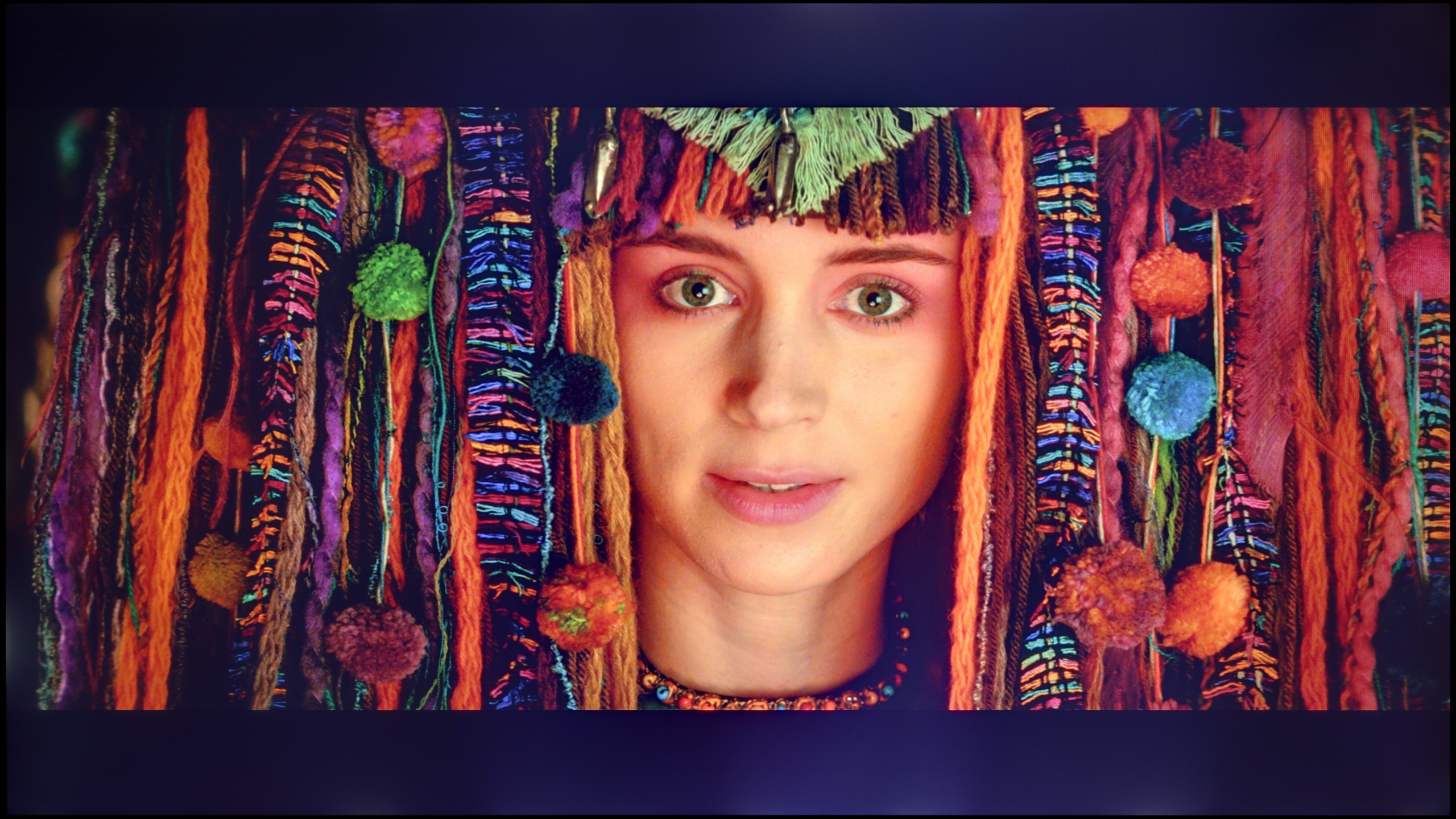


The manufacturer has been implementing extensive support for the calibration process in their LG televisions for many years. Therefore, we used 2- and 20-point grey scale adjustments along with an advanced CMS (Color Management System) and got to work. As you can see, thanks to the procedure carried out, each of the parameters has significantly improved. The use of tools has resulted in extremely beneficial effects, which include: studio colour reproduction, recovery of details in dark areas of the image, appropriate brightness characteristics, and proper colour saturation. Thus, we have maximised our approach to the reference image, or the one that the film director saw on the preview monitor. It is worth noting that the LG G4 televisions are the only ones that allow for even deeper intervention in image quality due to the capability to calibrate with 3D LUT matrices. However, this solution is recommended only for post-production or graphic studios.
What was saved in the QNED86A6A is undoubtedly the colours. After calibration, the white balance was set with great precision, ensuring that deviations on the Colour Checker palette mostly did not exceed the visibility threshold for the human eye. In other words – the colours finally looked natural, without strange yellow or orange tones that had previously marred the perception. Unfortunately, even the best calibration cannot overcome structural limitations. The already mentioned very modest number of local dimming zones and their unfortunate placement meant that the analysis of the EOTF curve in films still showed noticeable scene over-exposures. The image tended to flatten, lacking cinematic depth. Fortunately, this effect is not as visible in older productions or in SDR content. There, calibration really does its job and allows the QNED to be tamed so the image can be pleasing. However, the specifics of this construction – especially the contrast issues – cannot be completely bypassed.
Smoothness of tonal transitions
6.2/10
8.9/10

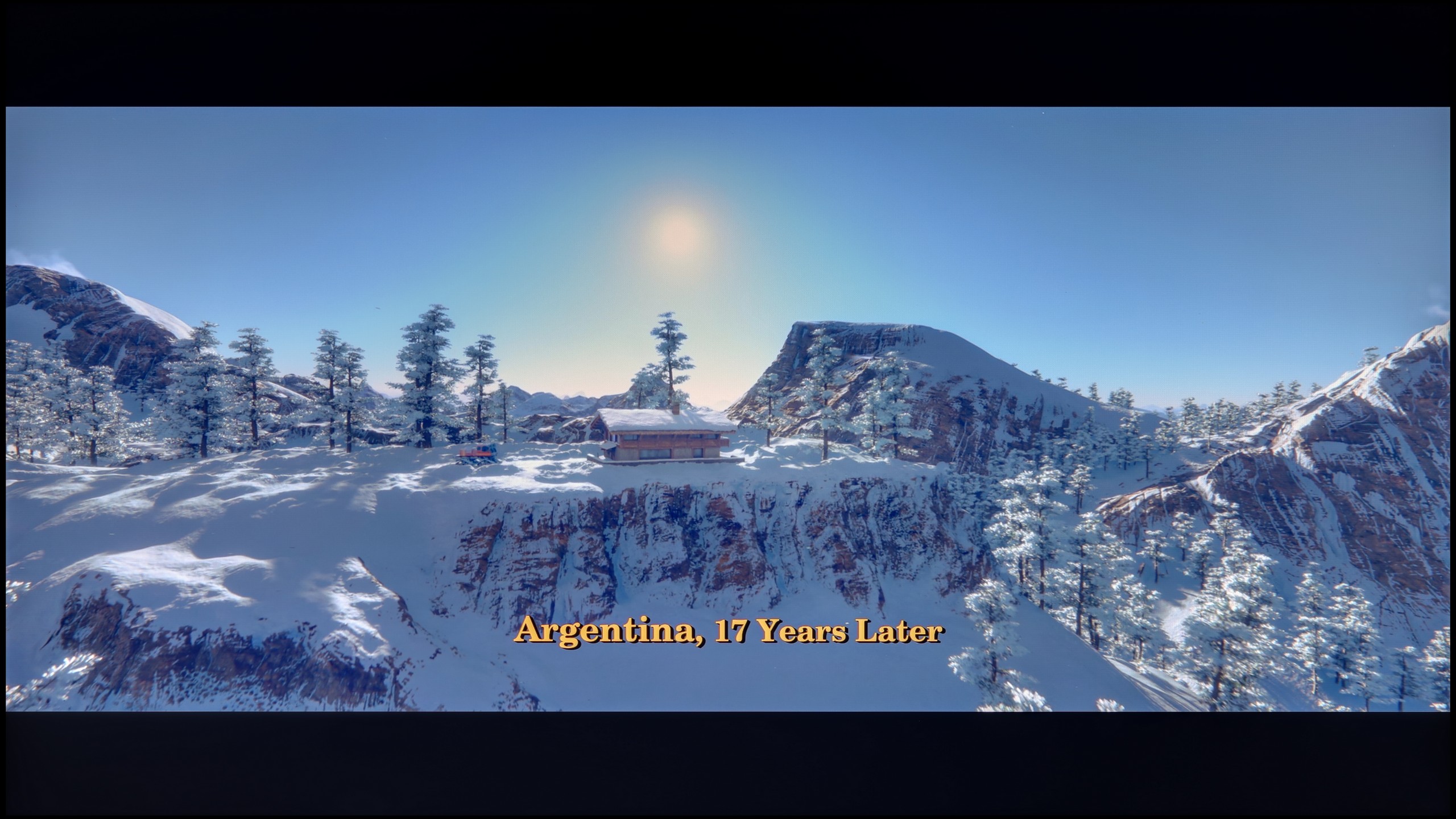



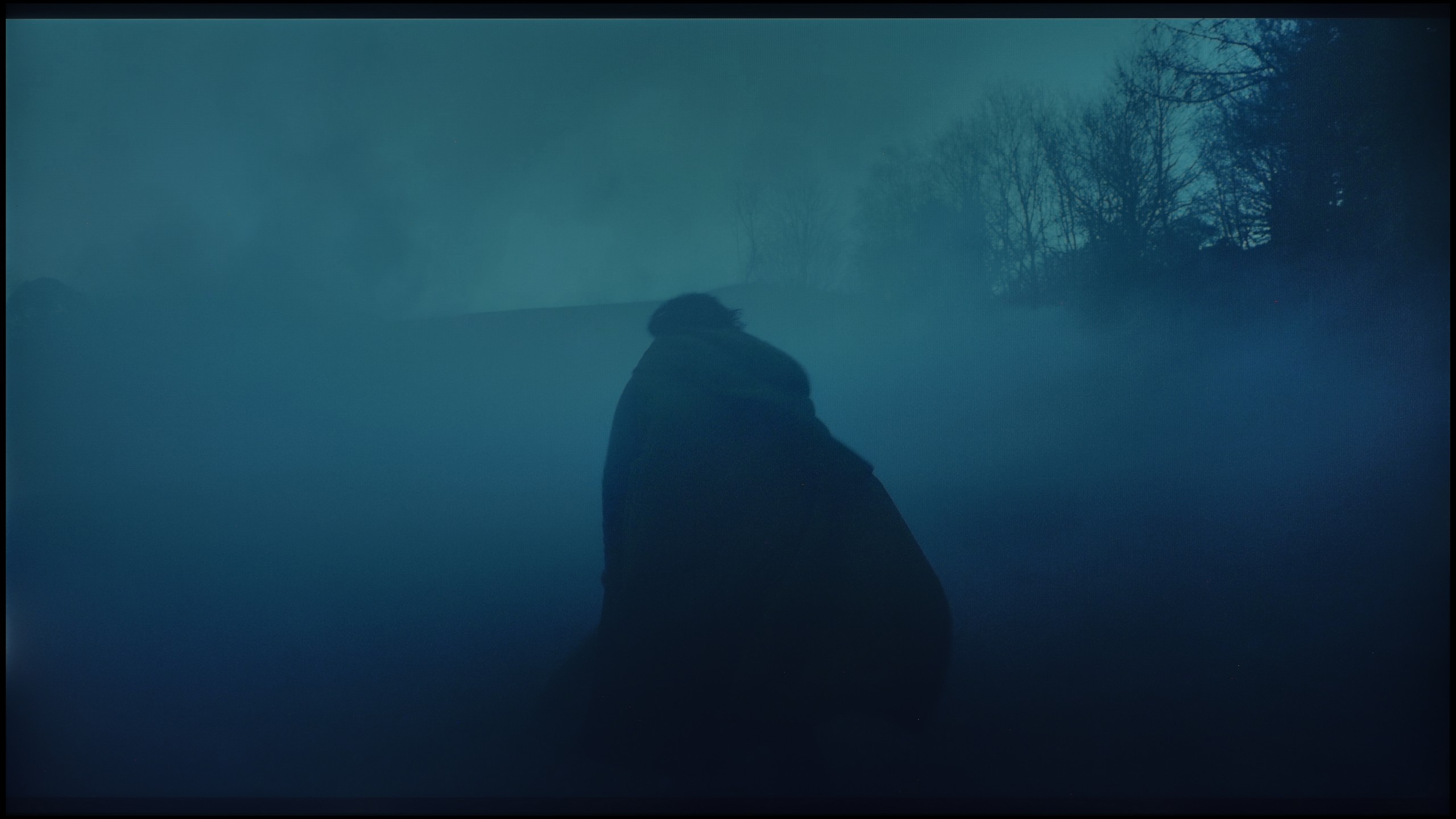

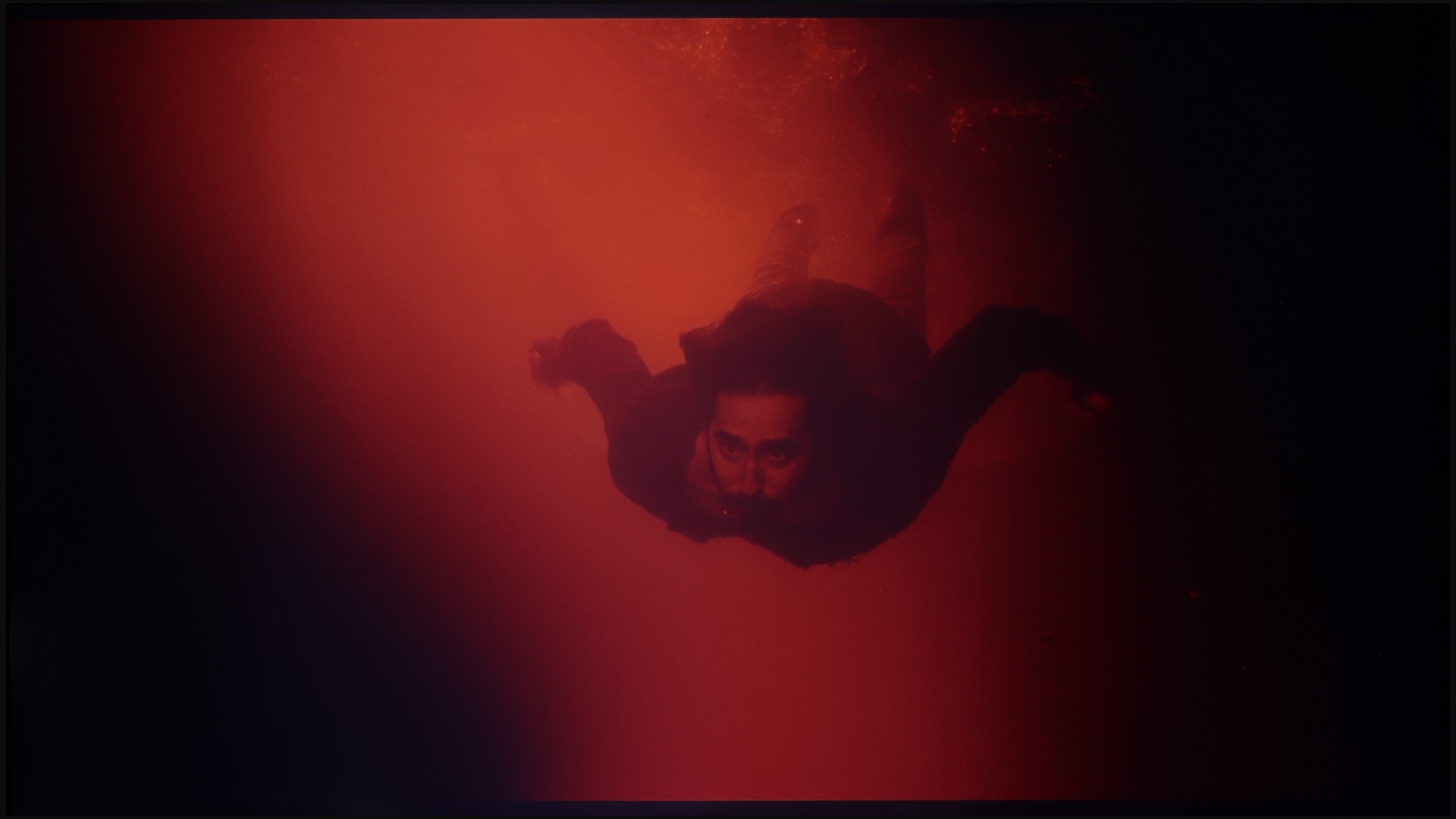




The tonal transitions presented on LG G4 are not among the top performers. Each scene played from a BluRay disc with 10-bit HDR exhibited noticeable choppiness in the colour transitions. This was particularly evident in the case of the film "The Green Knight," where issues related to posterisation were especially pronounced. This effect could also be observed in films with moderate to high brightness, such as "The Martian" or "Kingsman," which is rarely seen in televisions (especially of this class), which took us by surprise. Such results suggest that in scenes with low luminance and a lot of black, this issue will be troublesome, even for a layman.
Colour gradation is one of the strong points of the QNED86A. In everyday viewing, the picture looks really smooth, without noticeable "steps" or sudden transitions between colours. The TV handles colour blending quite naturally, so with most content, it’s hard to spot any issues with gradation. Any imperfections only appear in extreme conditions – for example, in the darkest parts of films, where even much more expensive TVs can have problems. There, you might notice slight banding or characteristic stripes, but these are marginal situations that shouldn’t be a bother during regular use. Overall, the QNED86A performs well in this category and has nothing to be ashamed of compared to the competition.
Image scaling and smoothness of tonal transitions
8.2/10
7.8/10
Smooth transition function

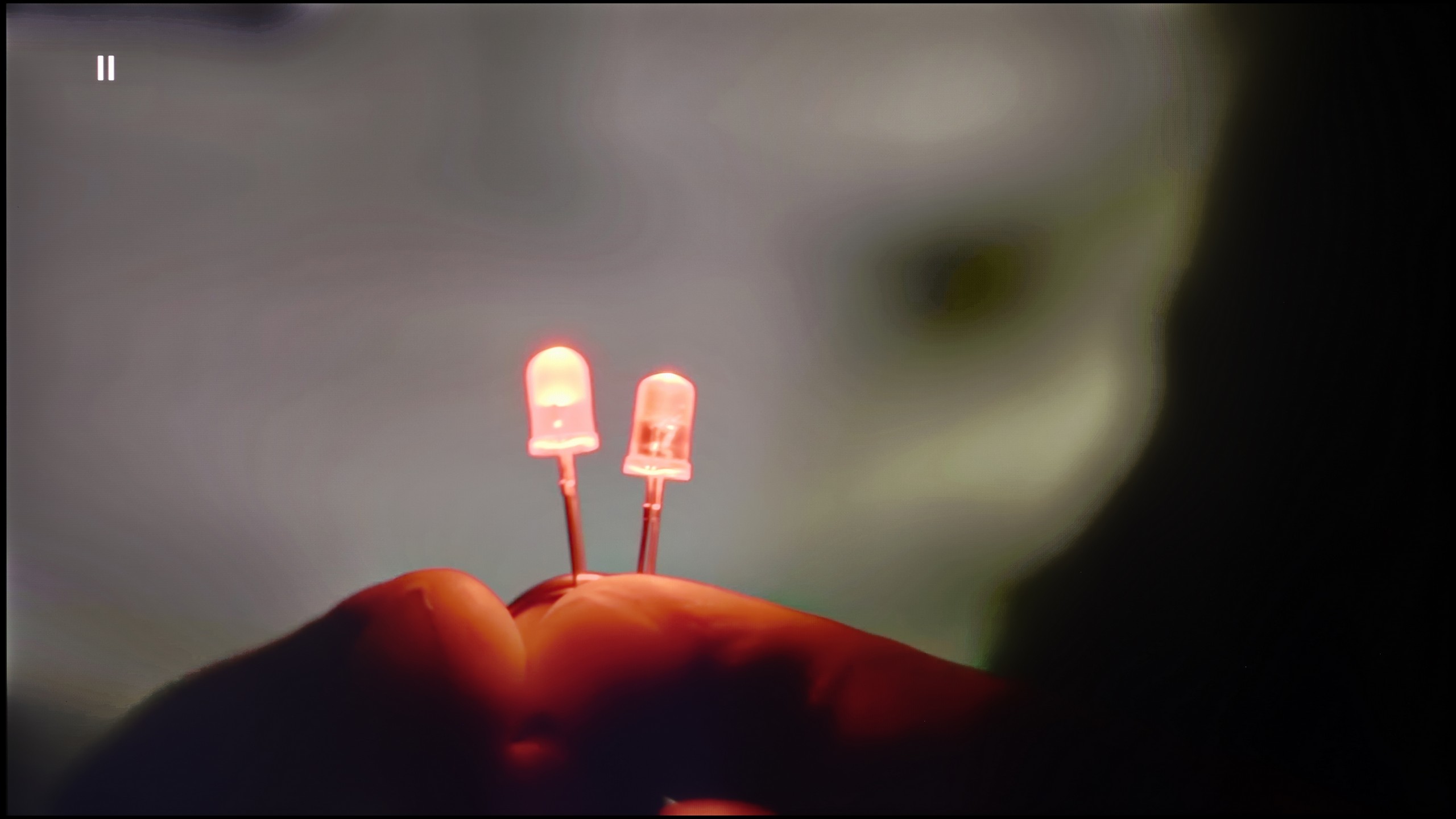
Image without overscan on the SD signal


The tested television did not perform well with content rich in tonal transitions, resulting in a strong posterisation effect. However, there is a partial remedy for this ailment. The manufacturer has equipped the LG G4 with a smoothing system called "Gentle Gradation," which we can apply at three levels: Low, Medium, and High. Each of these options guarantees quite high smoothing effectiveness on bright colours, though low on darker ones. We recommend primarily using the first one due to the fact that the other two interfere with directorial intentions, removing film grain.
When watching lower-quality content, the efficiency of the television during upscaling is extremely important. The image from the tested television is sharp and clear. However, attention should be paid to the jagged edges of fine details and minor issues around characters, such as the creation of a halo effect, which occurs due to the sharpening imposed by the LG G4 even when the slider is set to the lowest value, which is 0. It is worth noting that this is a change in relation to the LG G3, which did not impose such strong image sharpening, even when the appropriate slider was set to position 0.
If someone is worried about potential "steps" when blending colours, the QNED86A has a simple solution for that. Just turn on the feature called Smooth Gradation and set it to the medium level. Then the TV really smooths out all those unwanted transitions – especially in older productions – and it does so in a way that the film grain doesn’t disappear, nor do any strange artefacts appear. In other words, you can use it without any worries.
The upscaling itself also turns out quite well. Of course, there are no miracles here – with poorer quality sources, you can notice characteristic jagged edges. Fortunately, there is a sharpness slider in the menu, and if someone prefers a more "soft" image, it can be quickly adjusted to their own taste.
Blur and motion smoothness
8.5/10
7.9/10

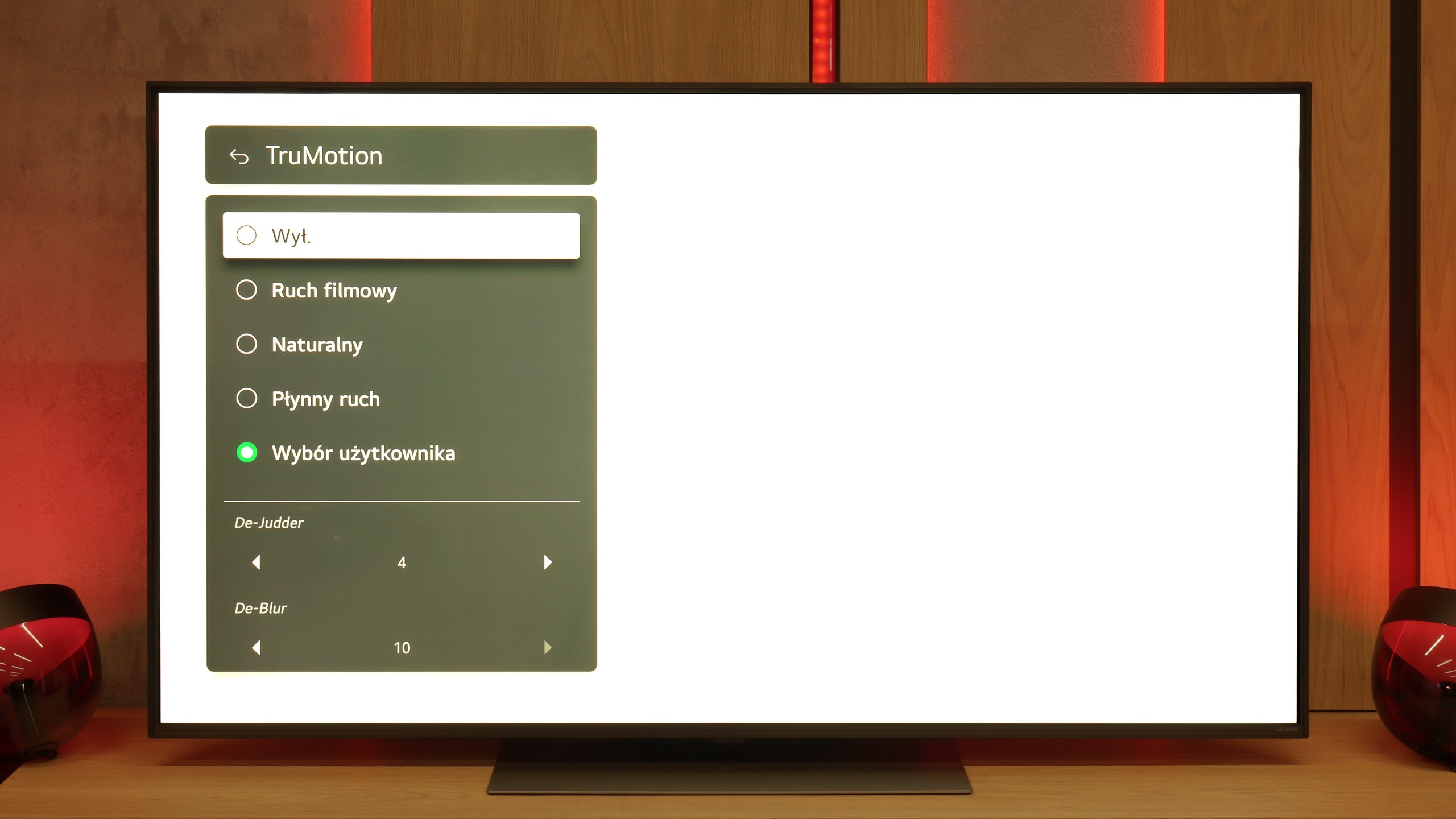
Blur (native resolution, maximum refresh rate):



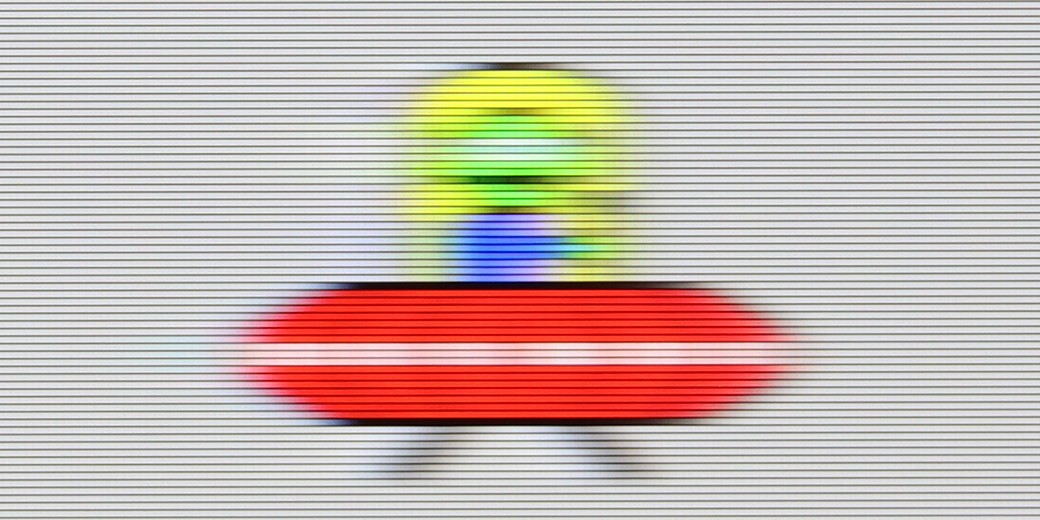
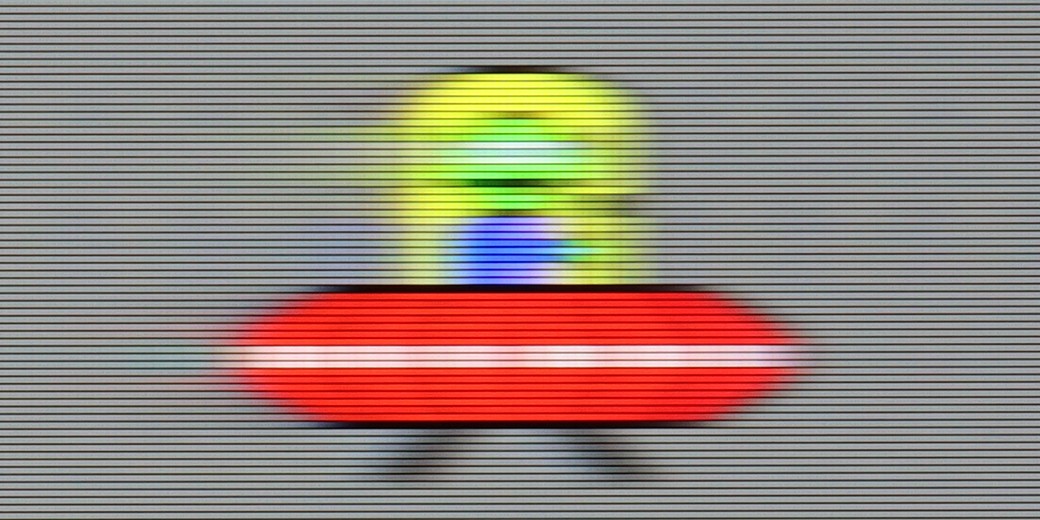
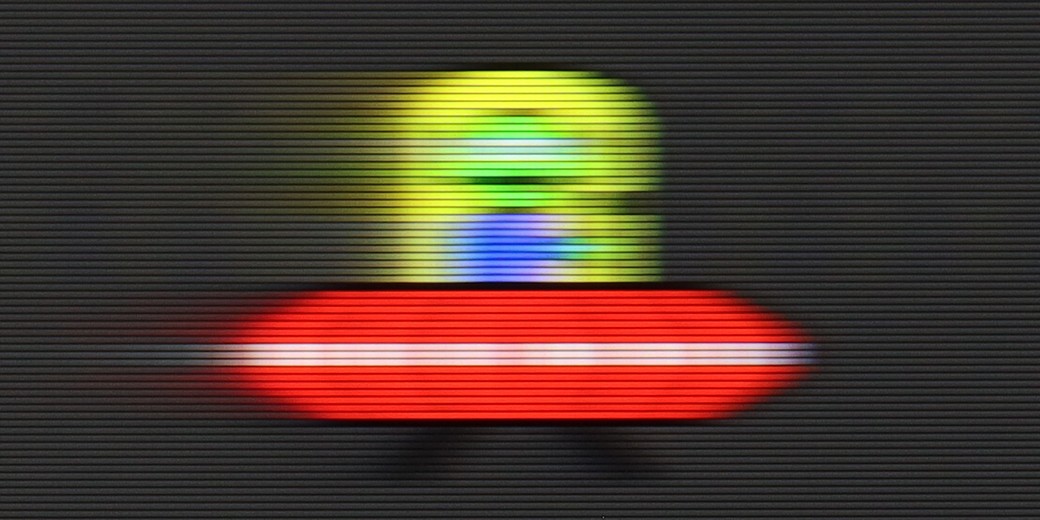
Blur (BFI function enabled):
Image flickers in this mode



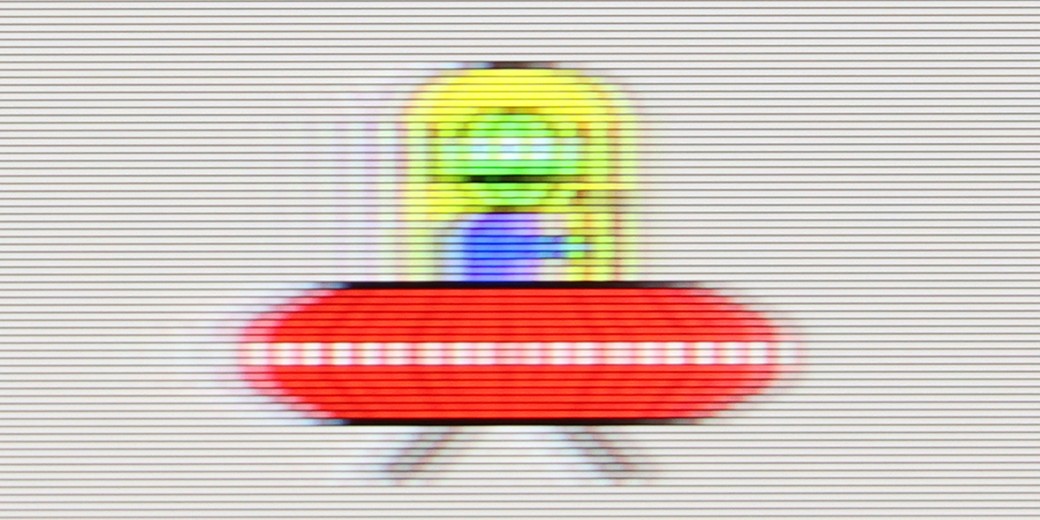
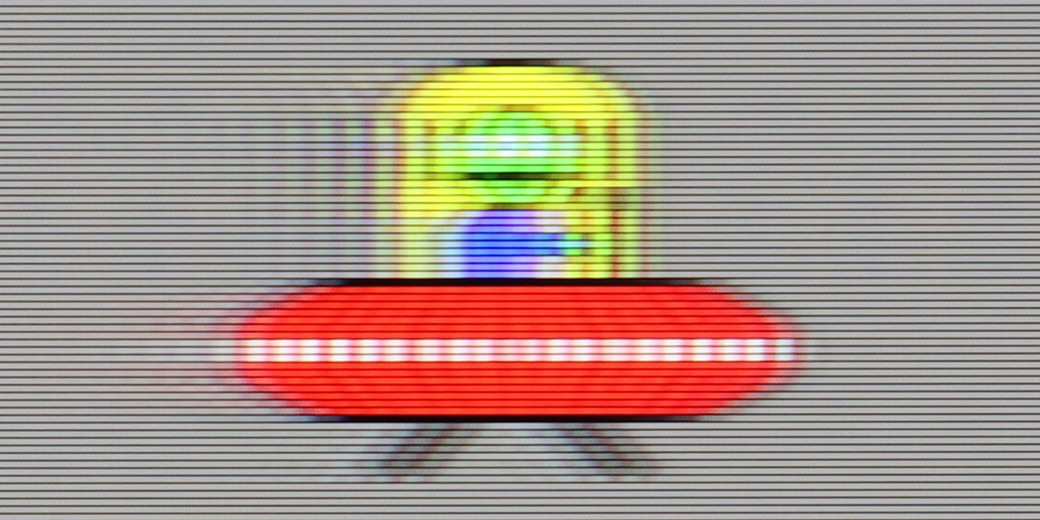
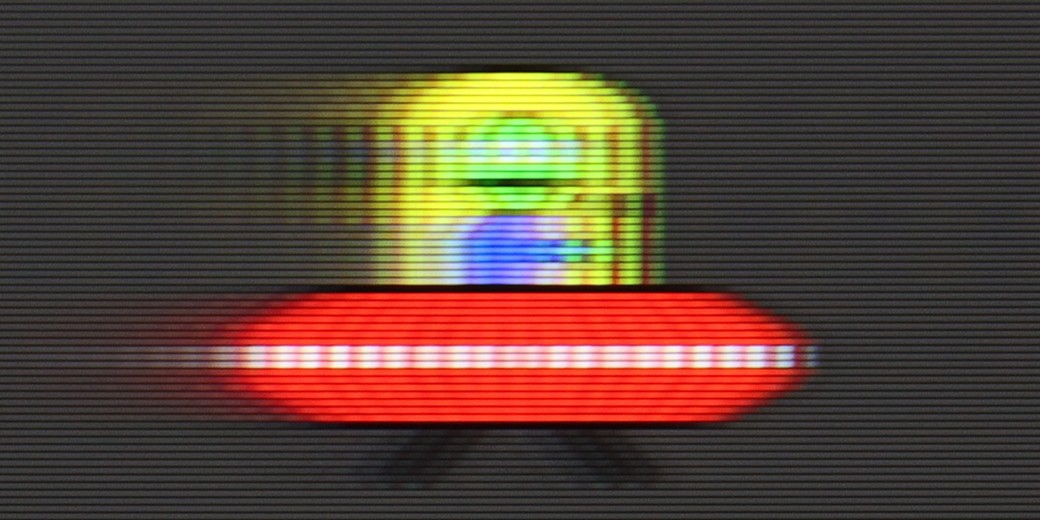
The maximum refresh rate that we can set on the LG G4 is 144 Hz. Naturally, this is only possible by connecting the LG G4 to a very powerful PC. Otherwise, we will be operating at a maximum refresh rate of 120 Hz, which is recommended if we primarily want to watch sports or content with high motion dynamics. For those who require high fluidity of image, the manufacturer has implemented a multi-level motion smoother called "TrueMotion". It has been divided into two separate sliders that adjust the sharpness of moving images (De-Blur) and judder (De-Judder). Both sliders can be set in the range from 0 to 10, with each increment affecting the degree of smoothing, so everyone can find their sweet spot.
The LG OLED G4 panel features an average response time of 0.78 ms (which directly results from our measurements), allowing for an incredibly clear image, unattainable by LCD televisions, which have response times of even several milliseconds. This is clearly visible in the "UFO Test" images, showing the absence of any trailing blur behind the object. Furthermore, the LG OLED G4 test showed that the television offers the ability to precisely adjust motion smoothing functionality, allowing users to choose the ideal level of image interpolation. We particularly appreciated this during fast-paced action in video games, where the LG G4 performed exceptionally well, minimising any blurriness. Thanks to OLED technology, this model eliminates so-called ghosting, ensuring that the image remains sharp even in the most dynamic sports or movie scenes.
QNED86A has been equipped with a 120 Hz refresh rate panel, so right from the start, it can be said to be suitable for both sports and gaming. And indeed it is – the picture looks smooth, and motion blur isn’t too much of an issue. IPS panels have always had a bit of a problem with this, and here too you can sometimes notice slight blurring, especially in very dynamic scenes, but it’s not something that ruins watching a match or a fast-paced game. For cinema and sports fans, LG has included the traditional TruMotion smoothing feature. In the menu, we have two sliders – one for movies (De-Judder), and the other for sports (De-Blur). The first adds missing frames and allows you to adjust the character of motion – from raw, cinematic to a more fluid, “theatrical” feel. The second improves sharpness during dynamic actions, so it’s worth turning it up a bit if you watch a lot of sports.
Console compatibility and gaming features
10/10
9.8/10
- ALLM
- VRR
- VRR range40 - 144Hz48 - 120Hz
- Dolby Vision Game Mode
- Correct implementation of HGIG
- 1080p@120Hz
- 1440p@120Hz
- 4K@120Hz
- Game bar

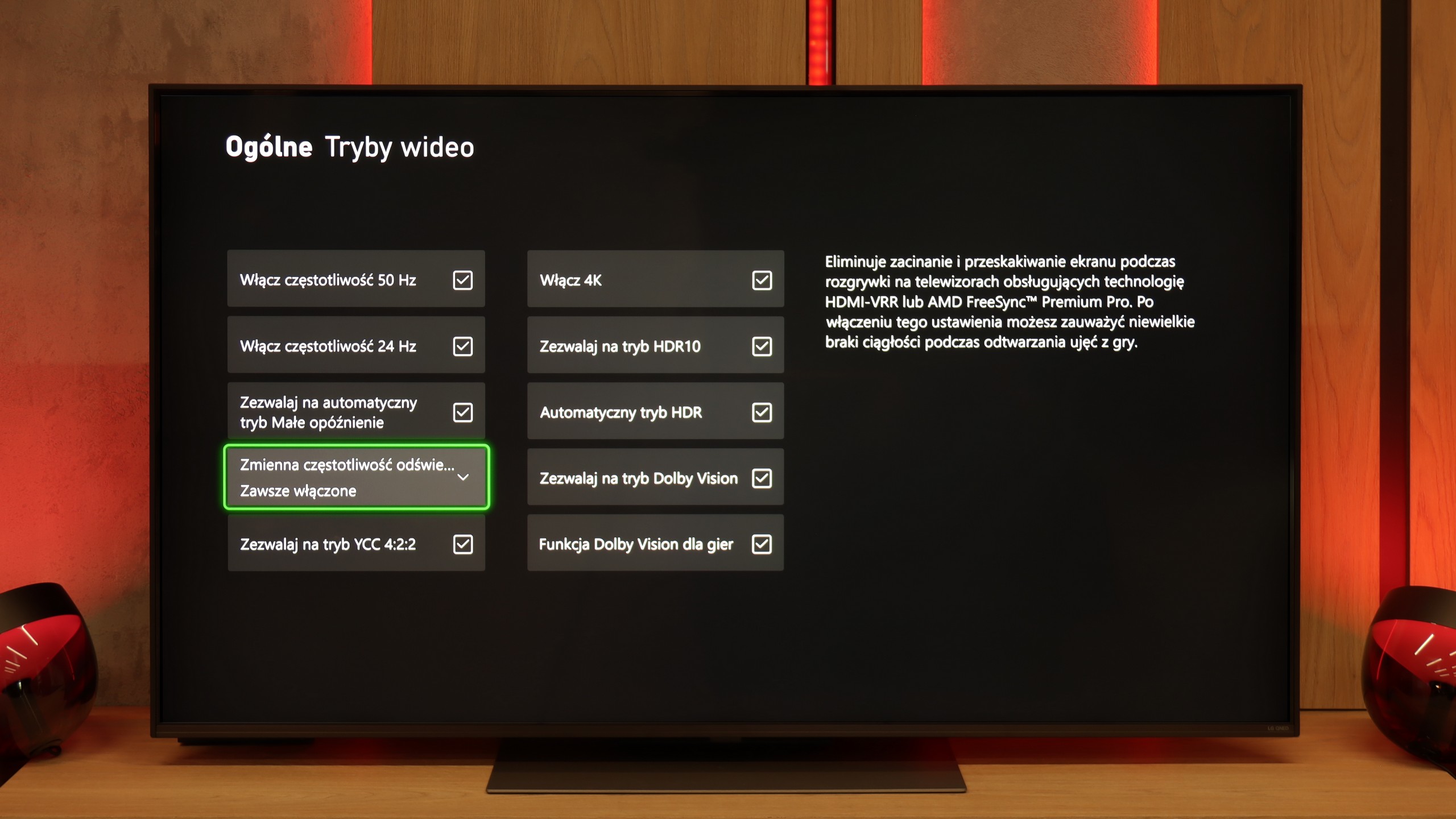

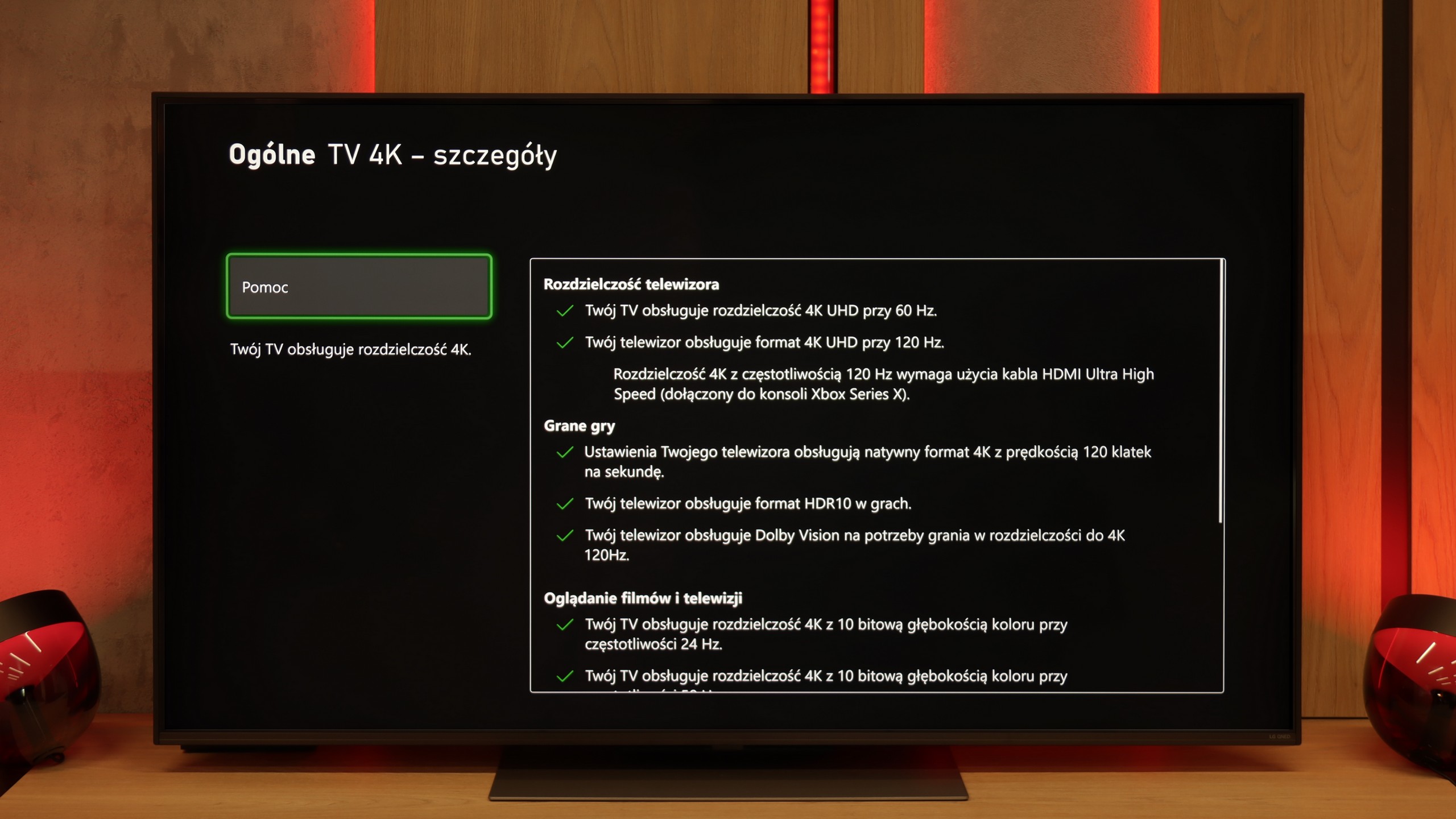

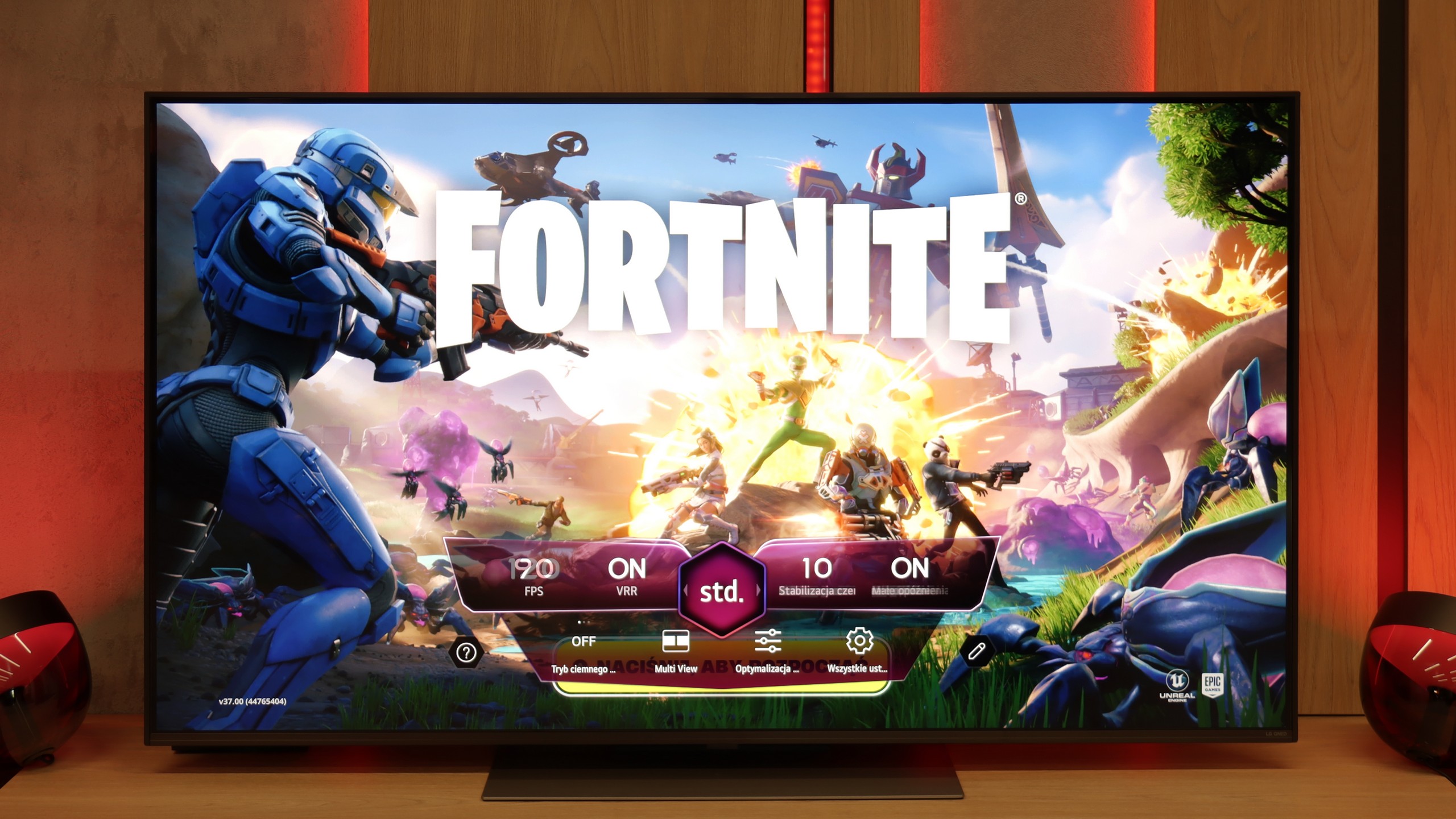

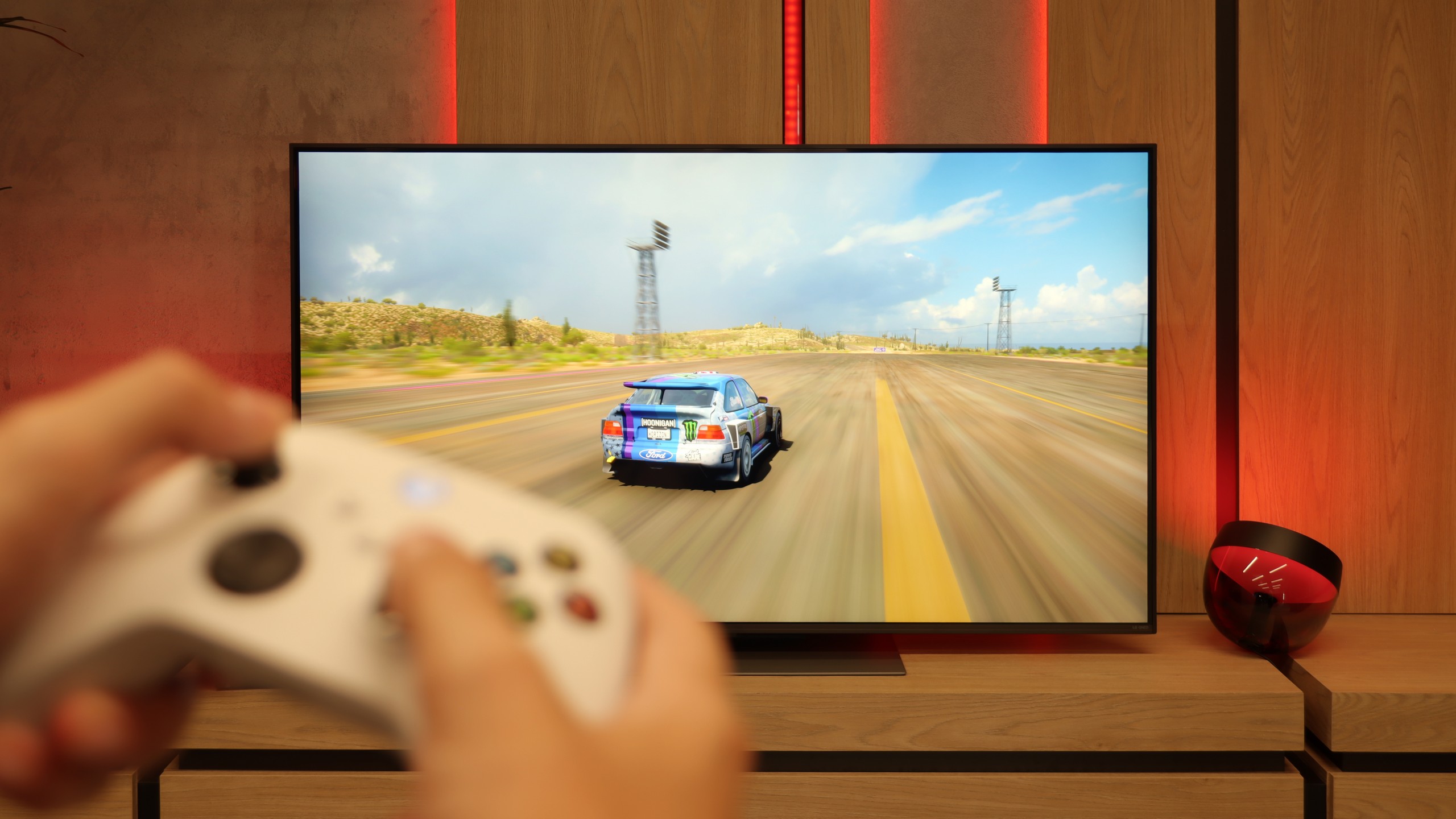
The LG G4 television supports all features that make up the HDMI 2.1 standard. During testing, each feature activated without any issues, which allows us to consider the television as designed for gaming. Its performance will certainly be appreciated by both console users and those connecting the LG G4 to a computer. It’s also worth mentioning the proper implementation of the HGIG (HDR Gaming Interest Group) mode, which ensures that games mastered to brightness levels beyond the maximum luminance of the LG G4 will correctly map tones, keeping the game image true to the original.
A nice touch is the presence of a special GameBar that we can bring up at any moment to check game parameters, but most importantly, to change them quickly. More importantly, turning on VRR technology does not degrade contrast, which is often a problem in televisions with local dimming or Mini LED backlighting. Of course, this is thanks to the OLED panel itself, characterised by pixel self-emissiveness. As a journalistic note, we will only mention a slight grey flicker, which, however, is somewhat normal when VRR is enabled.
In summary, the LG G4, like practically all OLED televisions, is an ideal product for all kinds of gaming and online competitions. With full HDMI 2.1 ports with a complete bandwidth of 48 Gbit, features such as VRR, ALLM, G-Sync, FreeSync, or HDR Dolby Vision gameplay will bring a lot of joy.
When it comes to gaming, the LG QNED86A6A is a complete tool. It features four HDMI 2.1 ports with a full bandwidth of 48 Gb/s, which means that whether you connect a PlayStation 5, an Xbox Series X, or a powerful PC – everything will work in full 4K at 120 Hz with support for all functions. This is a significant advantage, as some competitors still only feature two such ports, which can be troublesome when dealing with multiple devices. It also includes VRR, or variable refresh rate, which eliminates screen tearing, and ALLM, which automatically activates game mode when the console powers on. Dolby Vision Gaming is included as well, alongside proper implementation of the HGiG format, so titles that support these formats look livelier and more detailed. Additionally, there's the Game Optimizer – a kind of control centre for gamers. From this interface, you can view image parameters in real time, quickly switch modes, activate additional features, or adjust picture settings to your own preferences. The LG QNED86A6A has basically everything you would expect from a modern gaming television.
Input lag
10/10
9.9/10
SDR
HDR
Dolby Vision
The input lag of the LG G4 is impressively low in every scenario. Even the most dedicated gamers will surely appreciate the very low input lag at demanding 4K 120 Hz settings with HDR, which is just 5 ms. It's also worth noting that the lag at the same settings, but with Dolby Vision HDR enabled, remains unchanged, which is not as obvious with the competition. Therefore, it deserves the highest rating and recommendation.
There’s really nothing to complain about here. The QNED86A6A achieves excellent results – around 5 ms with 120 Hz content and about 15 ms with 60 Hz. These values will comfortably satisfy both console gamers and those who connect a PC to the TV. The response to movements is instantaneous, so you can forget about delays between the image and the action on the pad.
Compatibility with PC
8.6/10
8/10

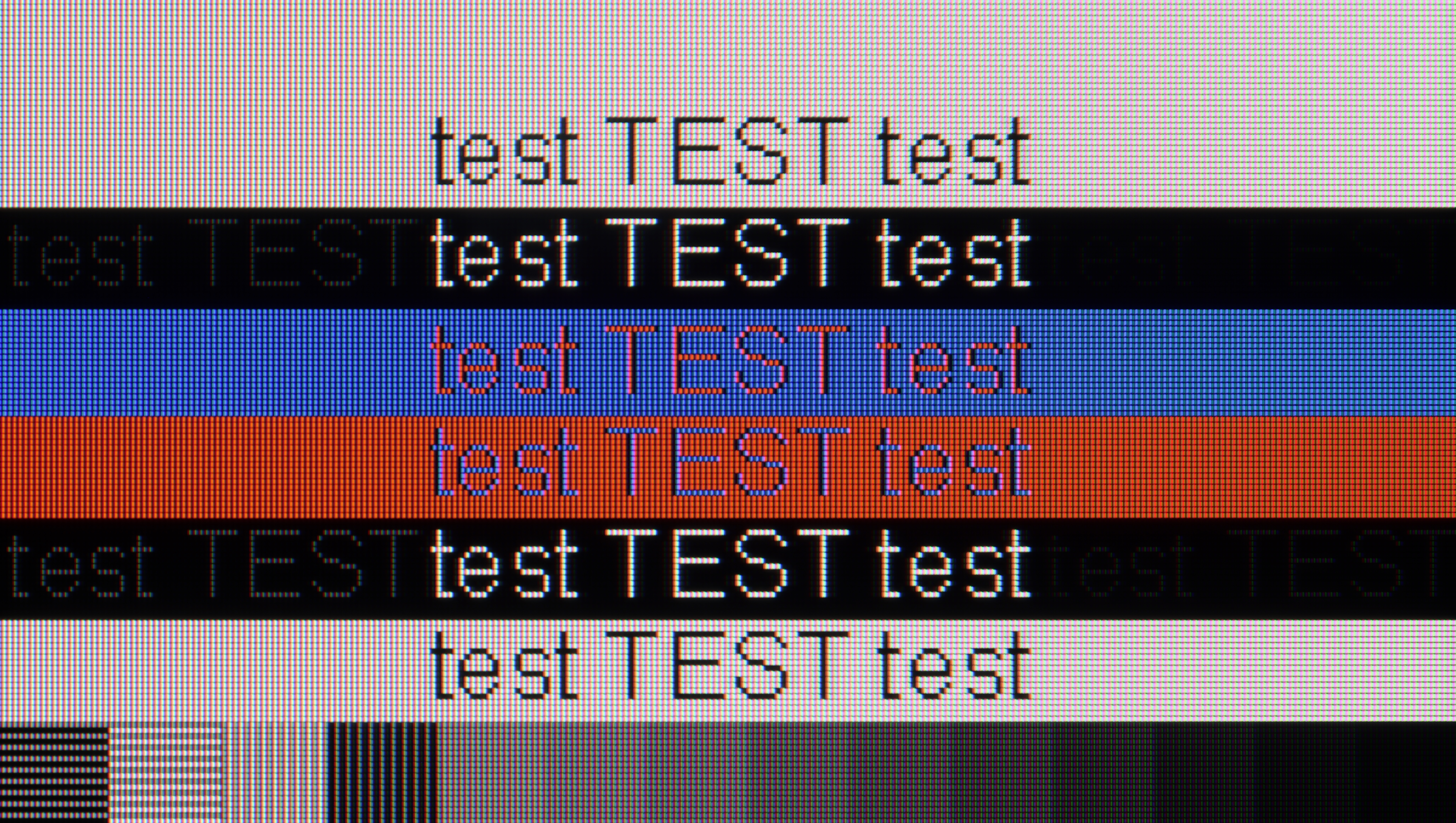
LG G4 paired with a PC performs excellently, thanks to an incredibly low latency of just 5 ms, which is practically instantaneous response between the mouse, eye, and screen. A crucial aspect while working on the screen is the readability of text, which is very good in the case of the tested television.
The RWBG pixel arrangement has no significant impact on the display of fonts or letters, which is a considerable advantage over Samsung's QD-OLED matrices. Users of both Windows-based PCs and macOS will surely be pleased with the performance on the tested LG G4 television.
LG QNED86A, with its IPS panel, full RGB subpixel layout, and proper implementation of chroma 4:4:4, makes text look fantastic on the QNED86A6A. The text is sharp, clear, and readable, making the TV ideal for office work. This is important as this year the model also debuts in a 43" size, which can easily sit on a desk and serve as a large monitor. Of course, some users opting for the 43" will be gamers, and here too there are no complaints. The TV supports 4K at 120 Hz, so gameplay is smooth and enjoyable. It's a bit of a shame that there wasn't a mode with a higher refresh rate, such as the 144Hz claimed by the manufacturer, as PC gamers would definitely appreciate that. Despite this, the QNED86A6A performs really well as a monitor for gaming and work.
Viewing angles
9.7/10
6.9/10
The undisputed advantage of OLED screens equipped with MLA technology is their performance when viewing from various angles. To the naked eye, there are no noticeable changes, regardless of where we are watching from. This type of screen maintains consistent brightness, saturation, and white hue, unlike LCD matrices or OLEDs without micro-lens technology (MLA). The only matrices that can match them are those produced by Samsung Displays, using quantum dots, namely QD-OLED.
QNED86A6A performs very well in this regard. The IPS panel used here ensures that the image retains its brightness and colour saturation even when viewed at an angle. There is no fading effect here, which often occurs in cheaper TVs with VA panels. Of course – it’s not worth comparing it to the level offered by organic panels, where colours and contrast hold perfectly at almost any angle. But as far as LCD TVs go, this is definitely one of the better results and is more than sufficient for watching movies or sports together on the couch with a larger group.
TV efficiency during daytime
5.8/10
5.8/10

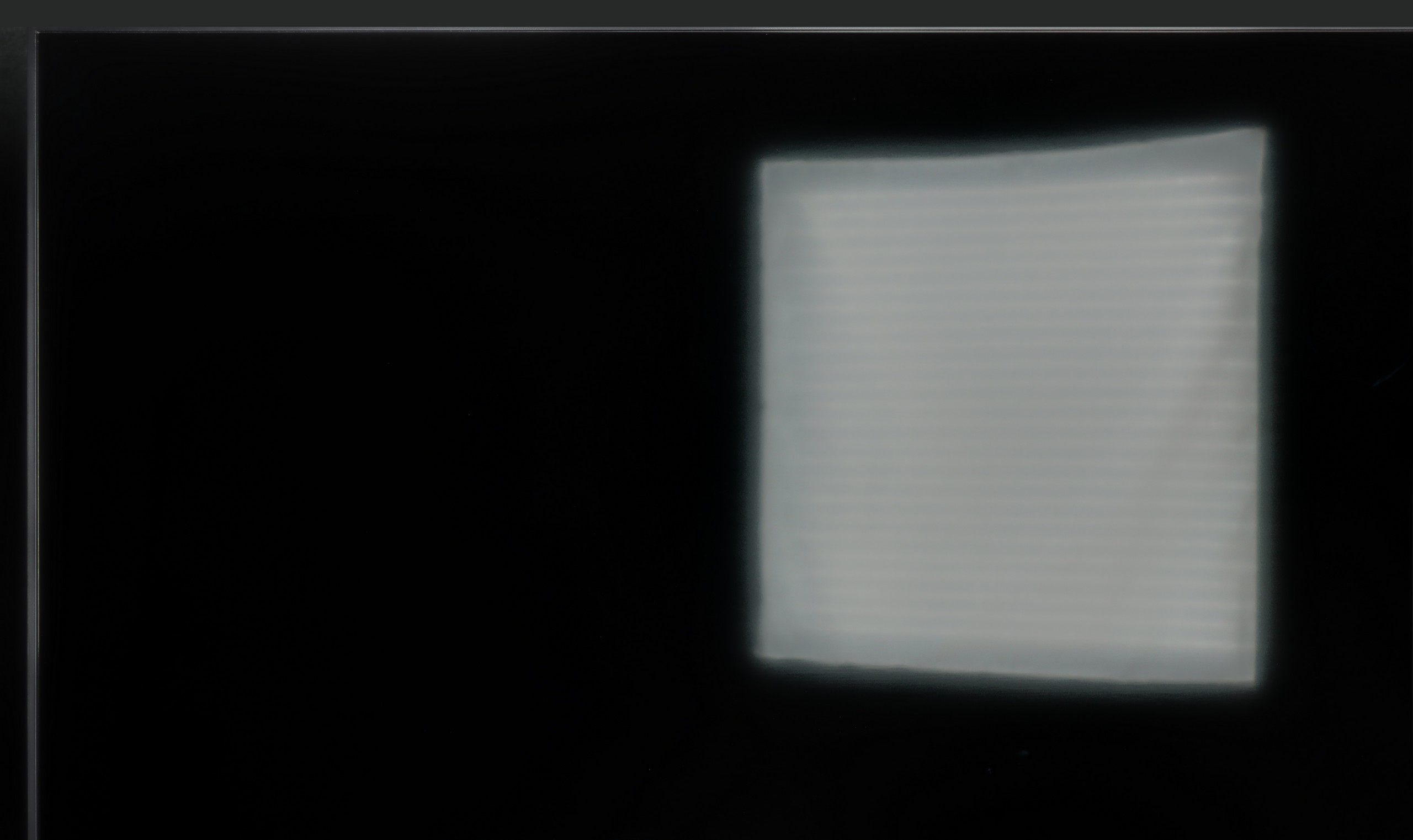

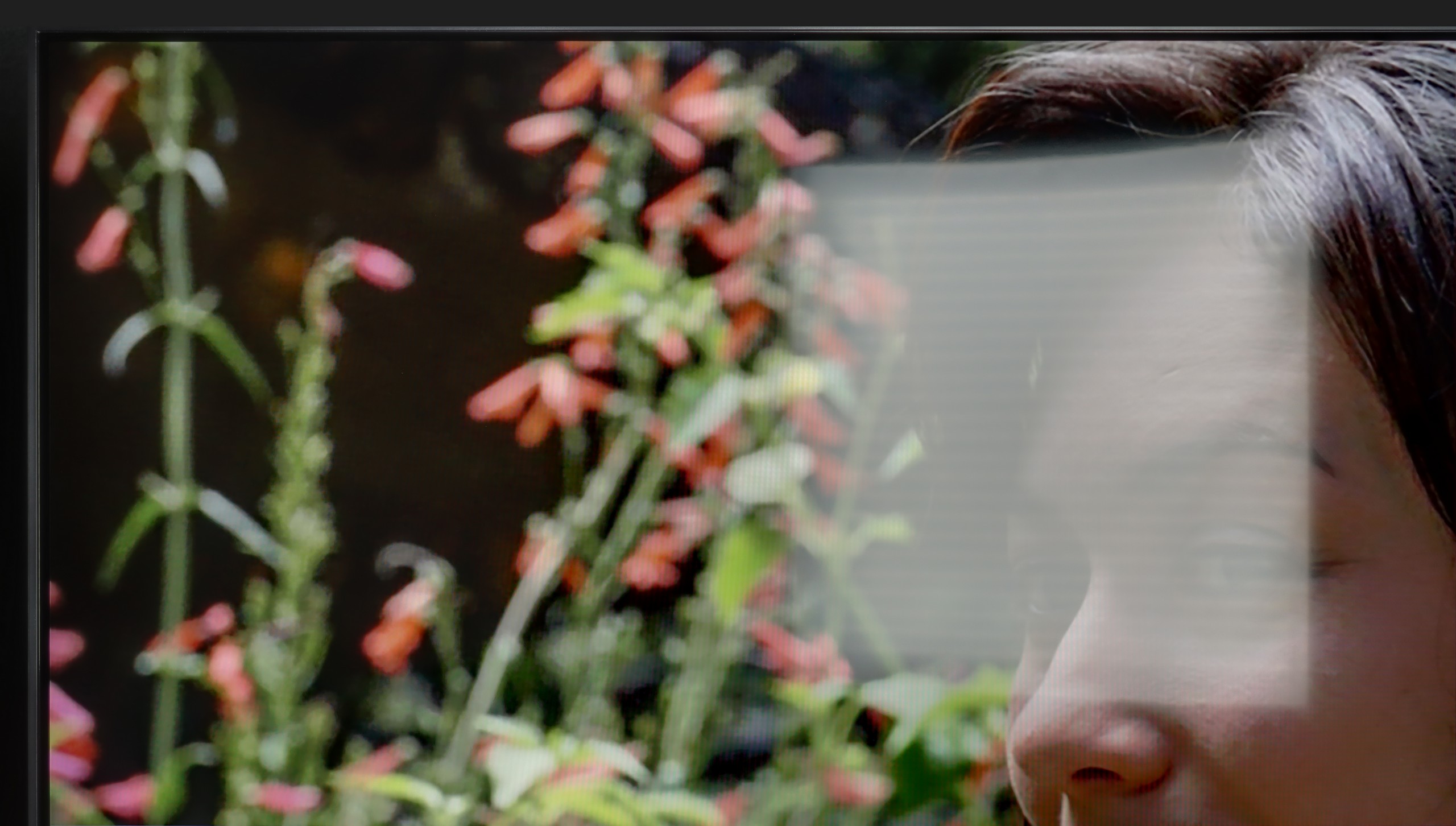
Matrix brightness
Average luminance SDR
LG QNED86A / QNED85A / QNED87A: 462 cd/m2
LG OLED G4: 482 cd/m2
The glossy coating of the display in LG G4, although it may sound like a downside, is actually quite the opposite. Thanks to it, the LG G4 television maintains very high efficiency and effectively suppresses all reflections, "holding" them only at their source. It's also worth mentioning the quality of black during the day, which in the case of WRGB displays produced by LG Displays is outstanding. OLED MLA displays, despite their many advantages, are somewhat inferior in this case, but still better in the context of competition from Samsung, whose QD-OLED displays fade under light. The combination of brightness at around 500 nits and the glossy coating allows for daytime viewing of the television, unless the user has a living room with large glazing.
QNED86A6A is not a master of brightness, but it manages adequately. Thanks to the moderately high brightness of the panel and quite decent glare reduction, the TV performs well in typical, moderately lit living rooms. The picture remains clear, and the colours do not lose their intensity in daylight. However, let's not kid ourselves, this is not a screen that will handle extremely bright conditions, where sunlight floods in through large windows and strongly saturates the room.
Details about the matrix
Subpixel Structure:

Panel uniformity and thermal imaging:

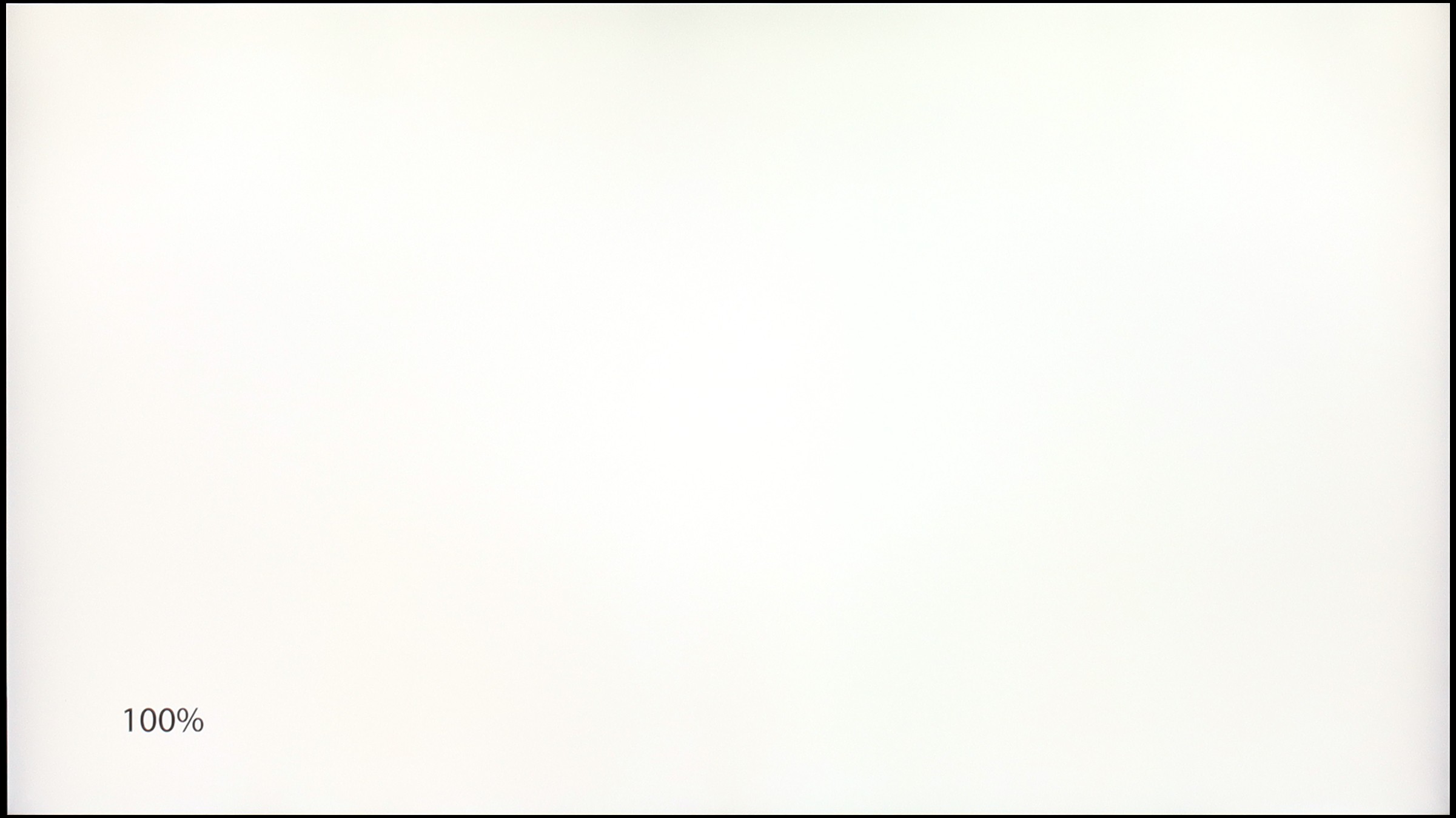
LG OLED G4
LG QNED86A / QNED85A / QNED87A
TV features
9/10
8.4/10
- HDMI inputs0 x HDMI 2.0, 4 x HDMI 2.1 48Gbps0 x HDMI 2.0, 4 x HDMI 2.1 48Gbps
- OutputsToslink (Optical audio), eARC (HDMI), ARC (HDMI)Toslink (Optical audio), eARC (HDMI), ARC (HDMI)
- Network InterfacesWi-Fi 2.4GHz, Wi-Fi 5GHz, Ethernet (LAN) 100MbpsWi-Fi 2.4GHz, Wi-Fi 5GHz, Ethernet (LAN) 100Mbps
- TV receptionDVB-T, DVB-T2, DVB-S, DVB-S2, DVB-CDVB-T, DVB-T2, DVB-S, DVB-S2, DVB-C
Classic features:
- Recording to USB (terrestrial TV)
- Recording programming
- Picture in Picture (PiP)
- RF remote control (no need to aim at the screen)
- Backlit remote control
- Teletext
- Audio only mode
- Bluetooth headphones support
- Simultaneous Bluetooth headphones & TV audio
Smart features:
- AirPlay
- Screen mirroring (Windows Miracast)
- Voice search
- Voice search in native language
- Ability to connect a keyboard and mouse


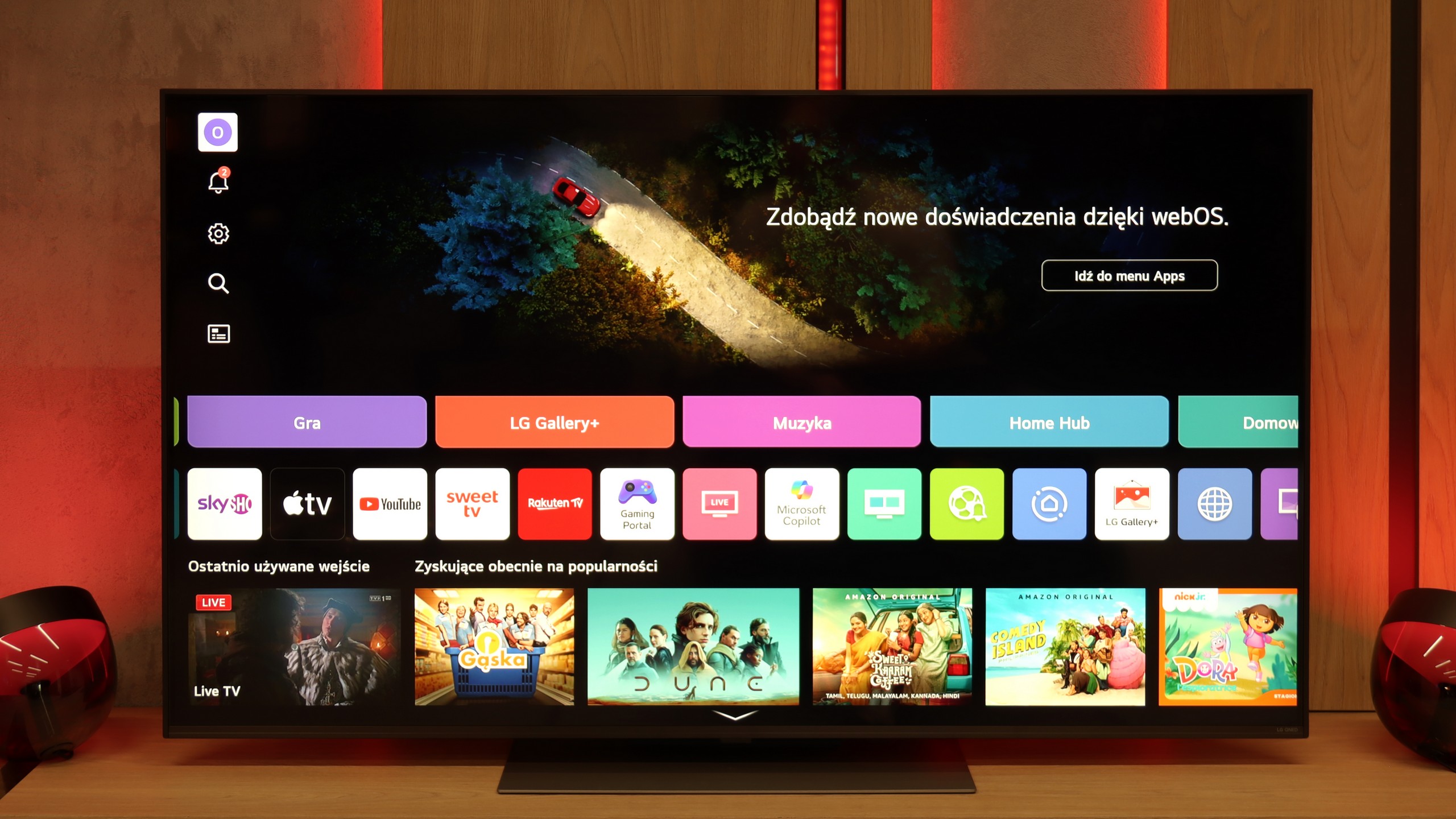
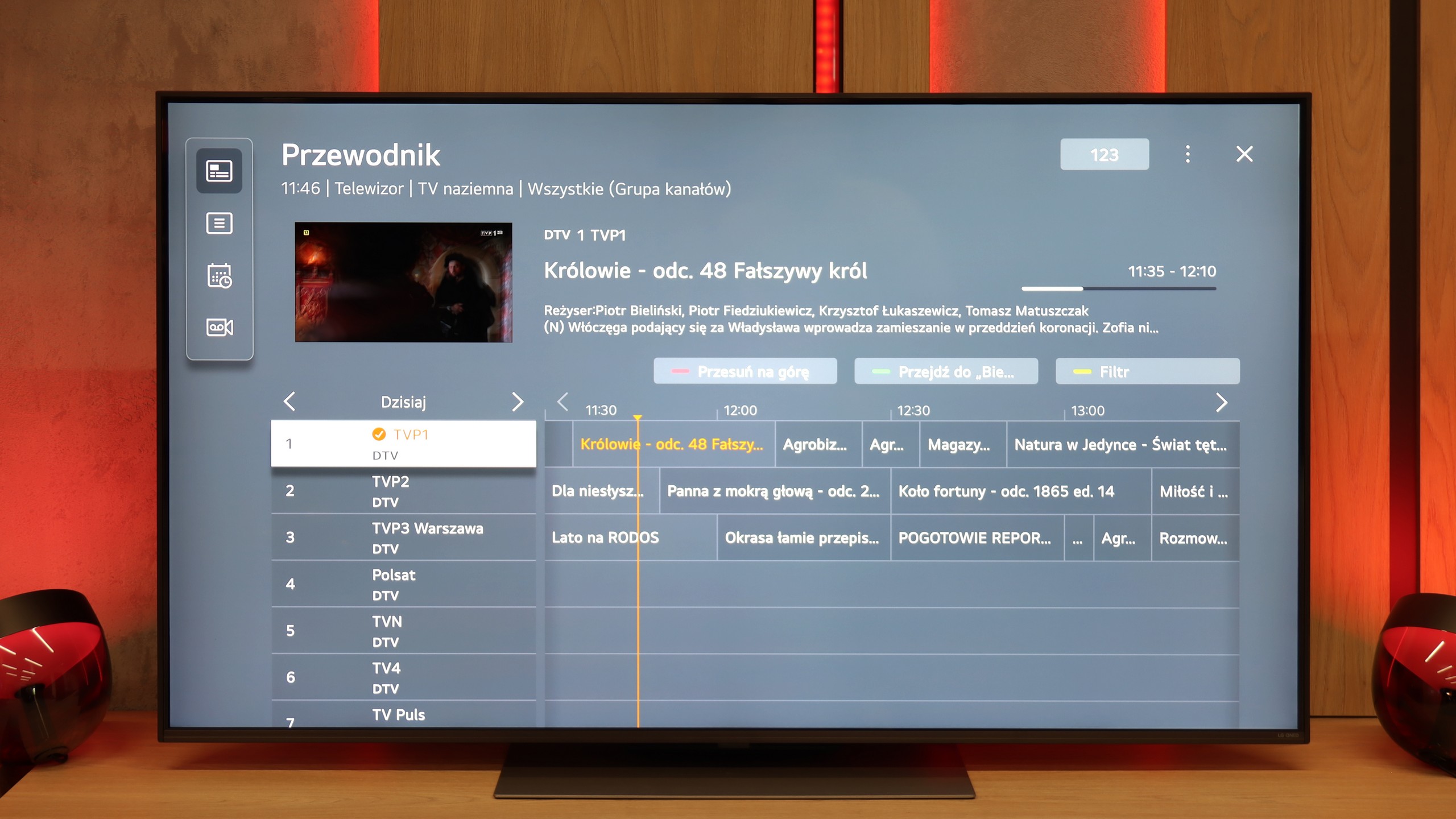
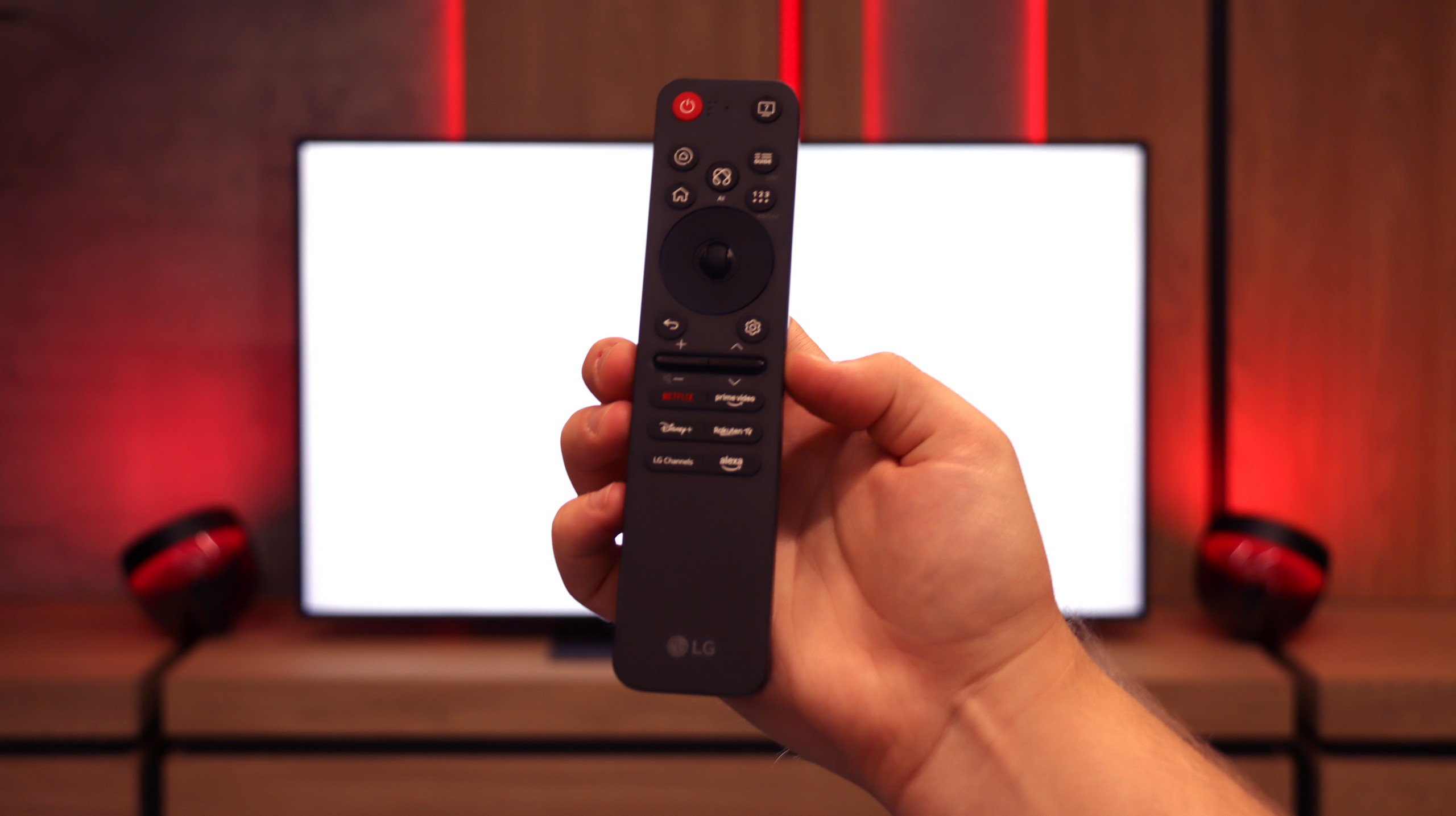
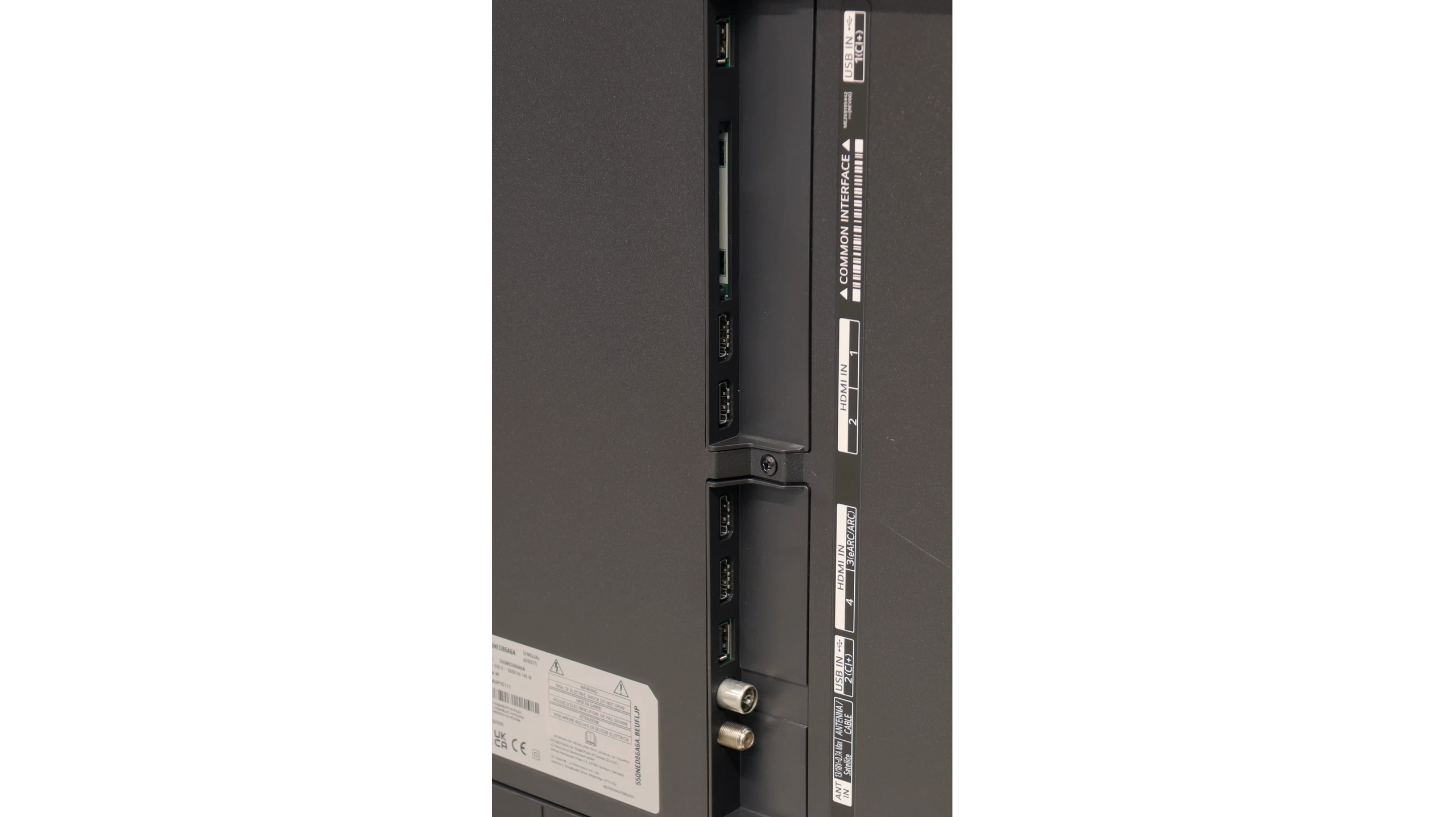
LG uses the well-known proprietary system WebOS, which has been around for many years. The system offers virtually all the essential applications, and those that are missing can be counted on one hand, such as CDA or KODI.
WebOS also provides the highly valued ability to perform operations using a cursor that appears when the remote control is moved. The convenience of such a feature is invaluable when entering queries or passwords for portals. WebOS, like most systems, also supports functions such as screen mirroring, AirPlay, voice search in Polish, and the ability to connect headphones via Bluetooth. On a more practical note, WebOS allows us to use both headphones and the TV speaker LG G4 simultaneously, which will certainly be a significant advantage for those with hearing disabilities. Among the more interesting features, particularly appreciated by sports fans, is the option to enable an alert for upcoming matches, ensuring that we never miss a broadcast. The home panel also deserves praise, allowing for control of all smart devices connected to the home network. For example, the end of a laundry cycle will be signalled by a notification in the top right corner.
In summary, the WebOS system, although less known and with some limitations compared to Android TV, offers stable and fast operation and supports most features that users might need. It is a solid solution for those looking for a simple and effective operating system in a television.
Smart Features: webOS
QNED86A6A runs on the well-known webOS – a system that has been a strong point of LG TVs for years. Everything operates quickly and smoothly, applications launch without significant delays, although the interface can sometimes feel a bit overloaded with ads. Fortunately, day to day, the convenience outweighs the shortcomings. A significant advantage is the Magic Remote, which allows you to control the cursor like a mouse – it's one of those solutions that you quickly get used to and later find hard to give up. In the new version, the remote is slimmer, as it has been stripped of the numeric keypad. Some will appreciate the simplicity, while others will miss the classic set of buttons; it’s more a matter of habit.
Classic Features
On board, we also find some solutions that in 2025 are not always obvious. There is the option to record programs from the built-in DVB-T2 tuners to USB, so you can easily return to a match or series at any time. In the evening, Bluetooth headphone support is handy – especially if someone in the house falls asleep quicker than we do. Additionally, there’s a full set of HDMI 2.1 ports with eARC support and audio formats such as Dolby Digital or Dolby Atmos.
Playing files from USB
8.5/10
8.9/10
Supported photo formats:
Maximum photo resolution:

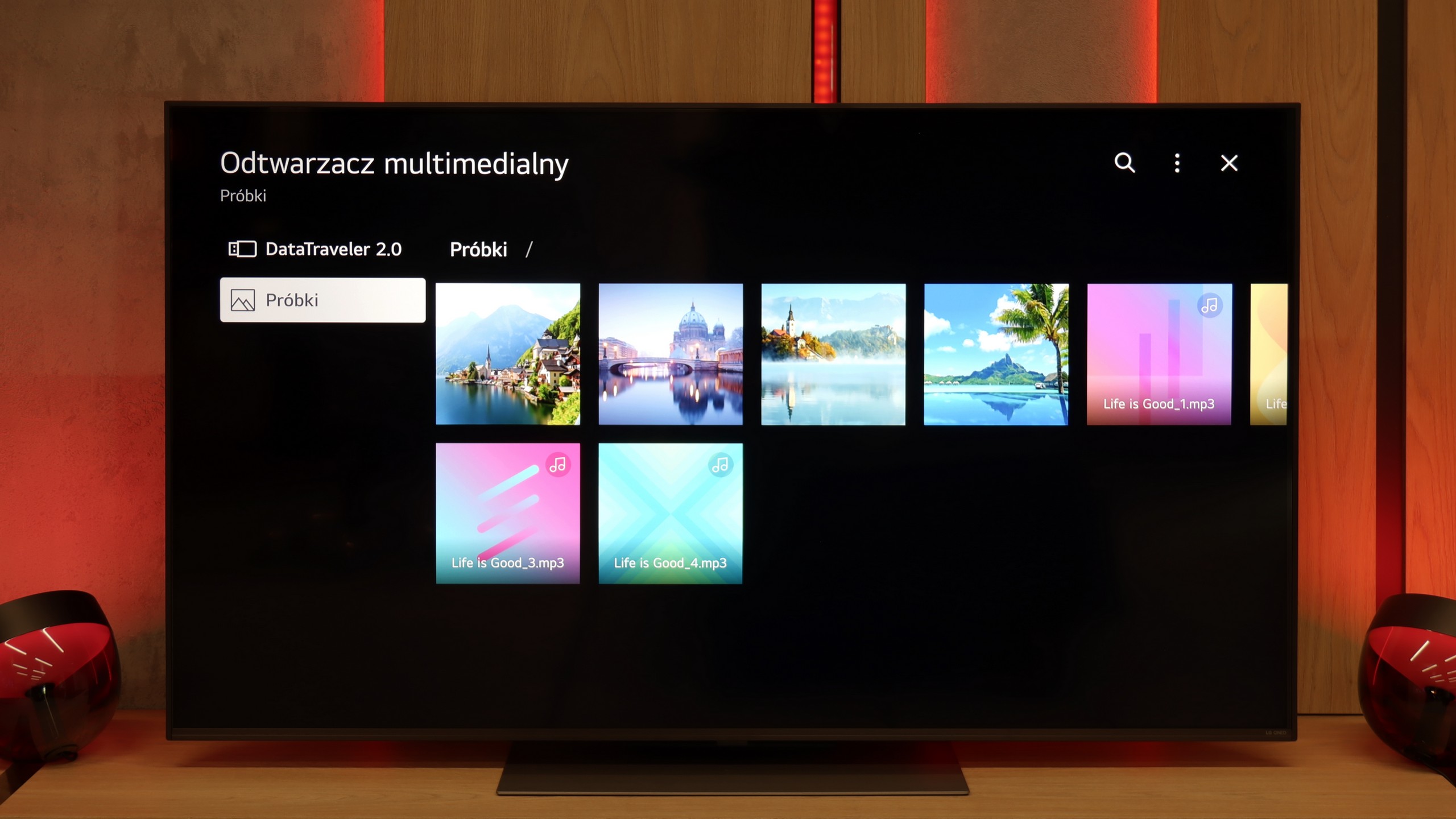
The default file player on the LG G4 performs quite well with most photos, although it's surprising to find a lack of several equally popular ones. It can successfully play videos recorded in virtually all the most popular formats, including Dolby Vision. The only codec that the G4 cannot play is H.266 VVC, although this is currently quite rarely used. However, it's important to note the supported photo formats, of which there are only two: JPEG and PNG. Users of Apple phones may feel disappointed by the lack of support for the HEIC format, which is the default format when taking photos. The remedy for this is to use the built-in AirPlay feature. Lastly, we should also mention the lack of support for TXT subtitles.
The built-in media player in the QNED86A6A handles the most popular audio and video formats quite well. During testing, we had no issues playing MP4, MKV, or MP3 files; everything played smoothly and without hiccups. The TV also managed most images, although here we encountered a common barrier for many manufacturers – the lack of full support for the HEIC format from Apple. So, if you regularly use an iPhone and store photos in this standard, you'll need to convert them beforehand or, better yet, transfer them using AirPlay. Other than that, it's hard to find fault; as far as built-in solutions go, it's really decent.
Apps
9.1/10
9.1/10














































Sound
8.6/10
6/10
- Maximum volume-84dB
- Dolby Digital Plus 7.1
- Dolby True HD 7.1
- Dolby Atmos in Dolby Digital Plus (JOC)
- Dolby Atmos in Dolby True HD
- DTS:X in DTS-HD MA
- DTS-HD Master Audio
The assessment of sound quality is always subjective. However, we must give credit to LG G4 for maintaining a fairly good level of sound clarity. The biggest drawback of the built-in audio system in the television is the low bass range. However, it’s important to look at this from a different perspective — anyone opting for this television will likely have a home theatre system. The key in this case will be broad support for audio codecs, including DTS-HD Master Audio and Dolby Atmos.
In terms of sound, the QNED86A6A performs quite decently, but let's not kid ourselves – it’s not a level that will impress home cinema enthusiasts. The sound is clear and distinct, dialogues are easily heard, but overall it sounds rather flat and definitely lacks solid bass tones. For everyday TV watching, streaming services, or news, it’s an acceptable level, however, if you're planning to watch movies or play games more often, even a basic soundbar will make a significant difference.
Acoustic Measurements
No acoustic data
84dBC (Max)
75dBC


